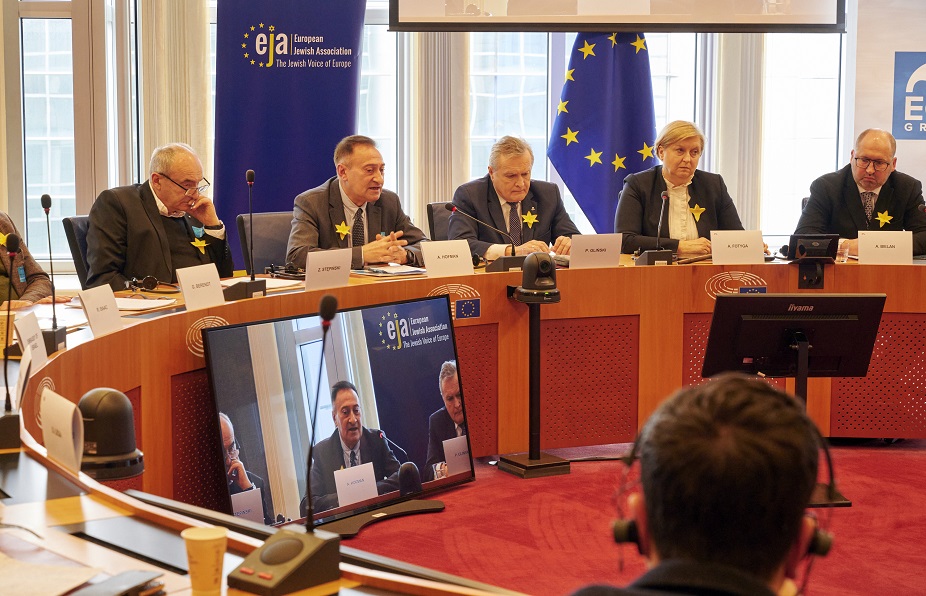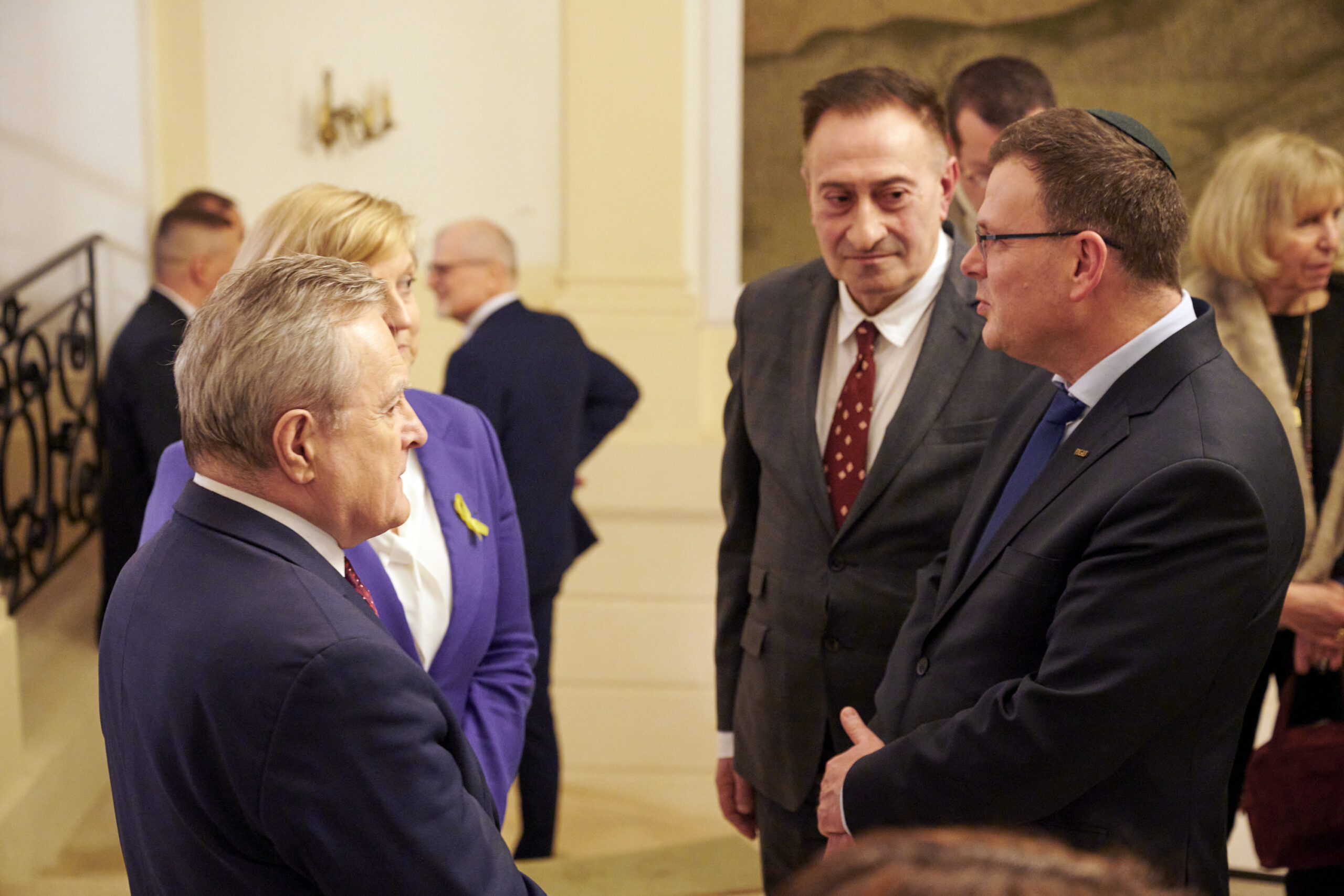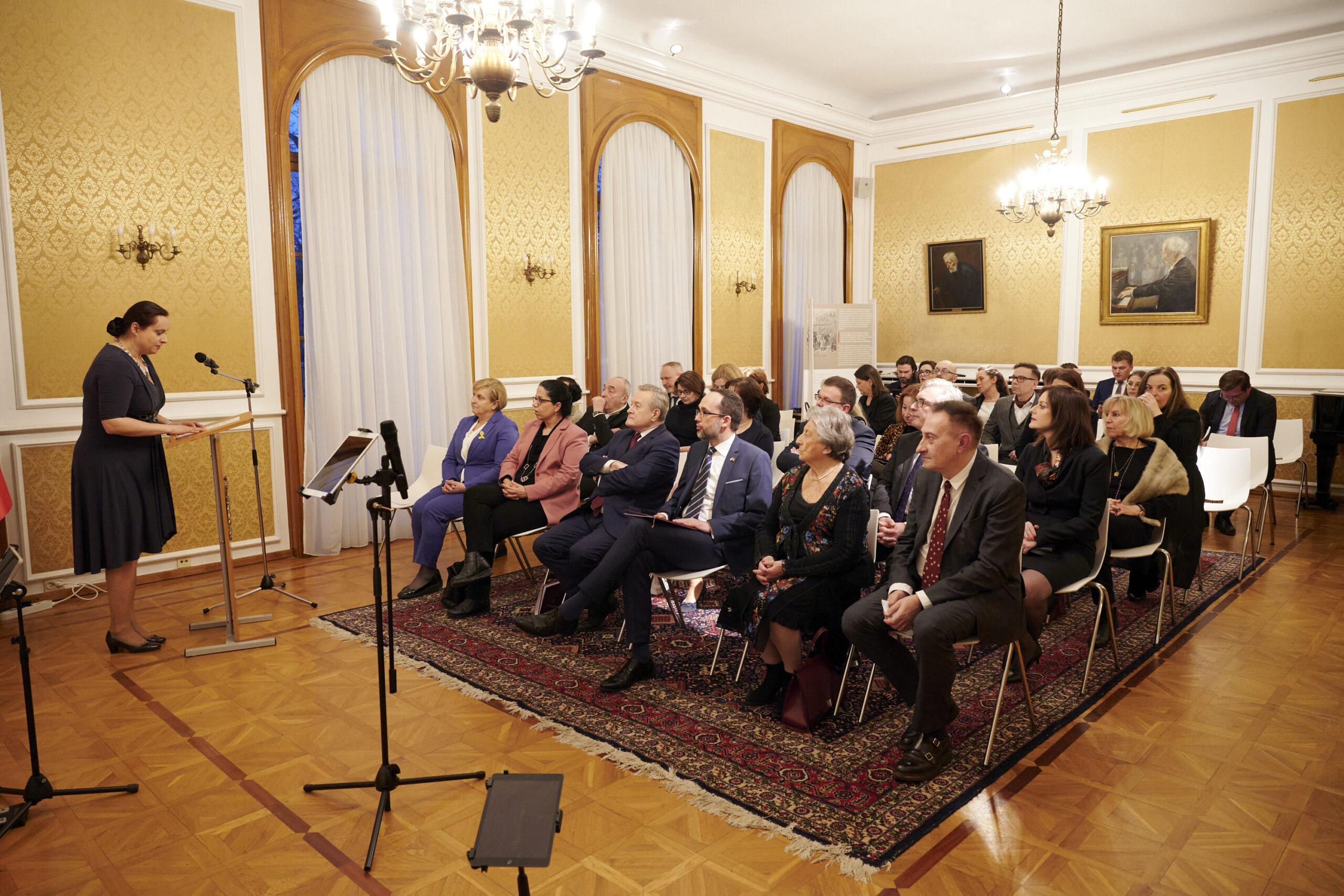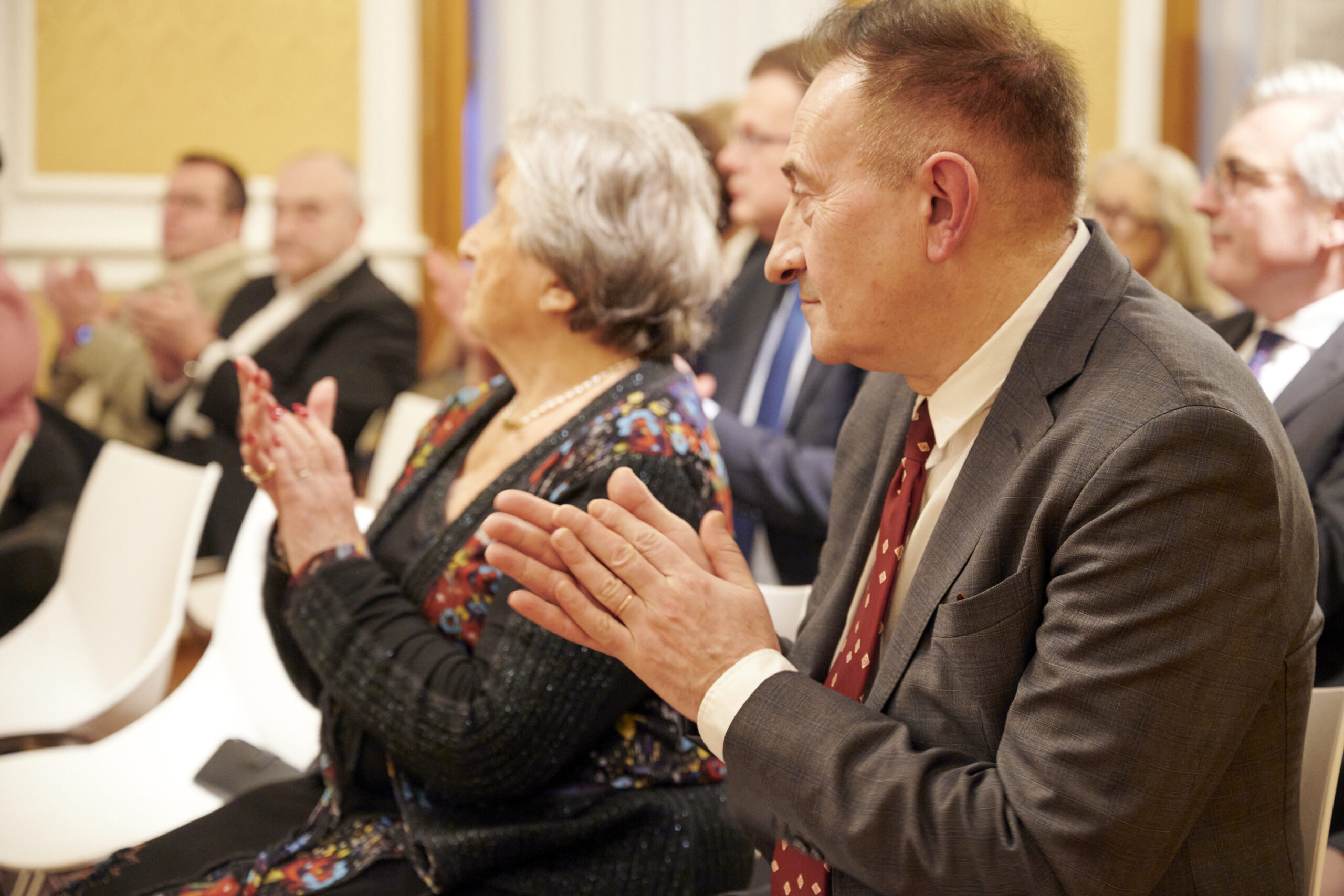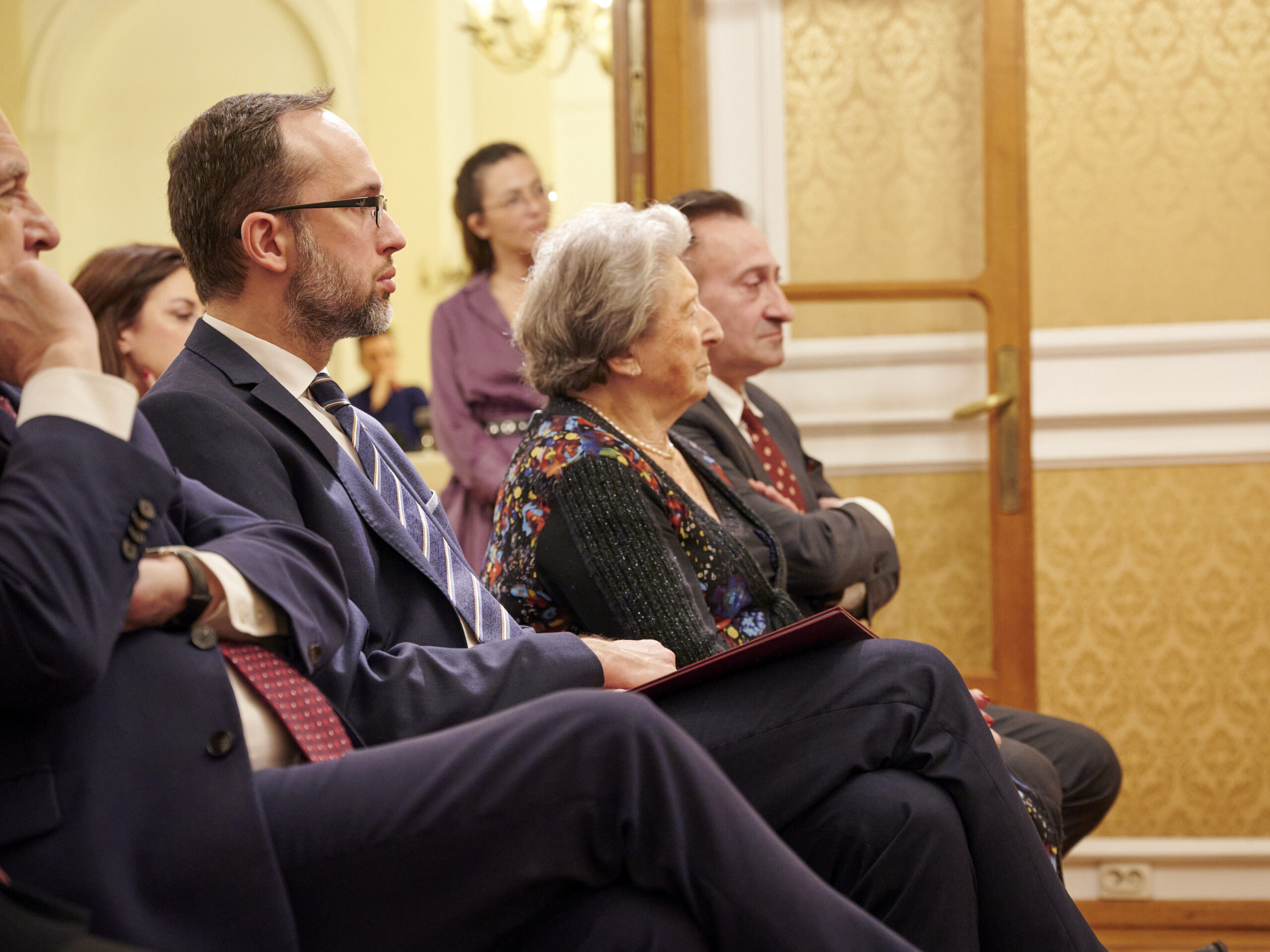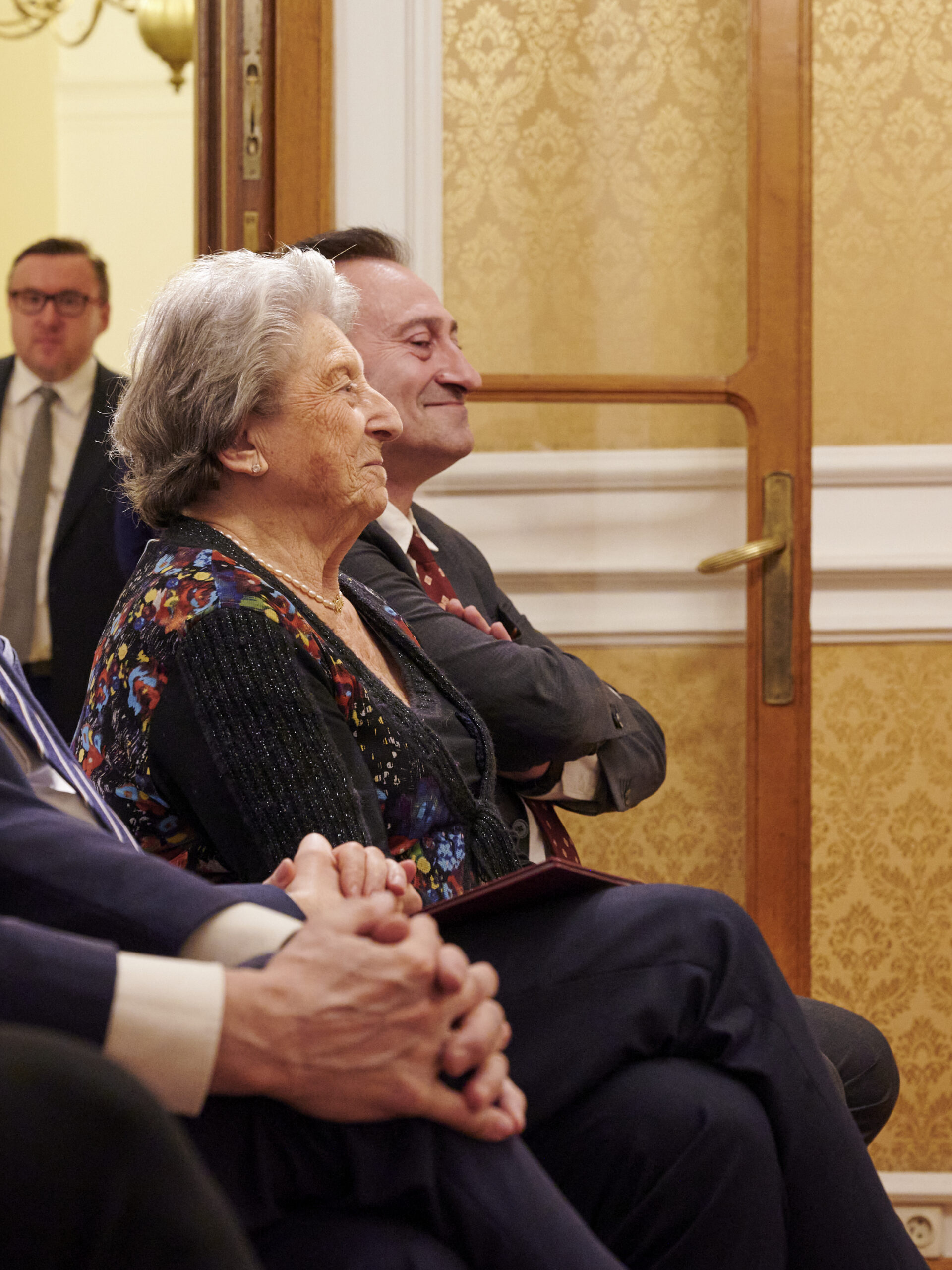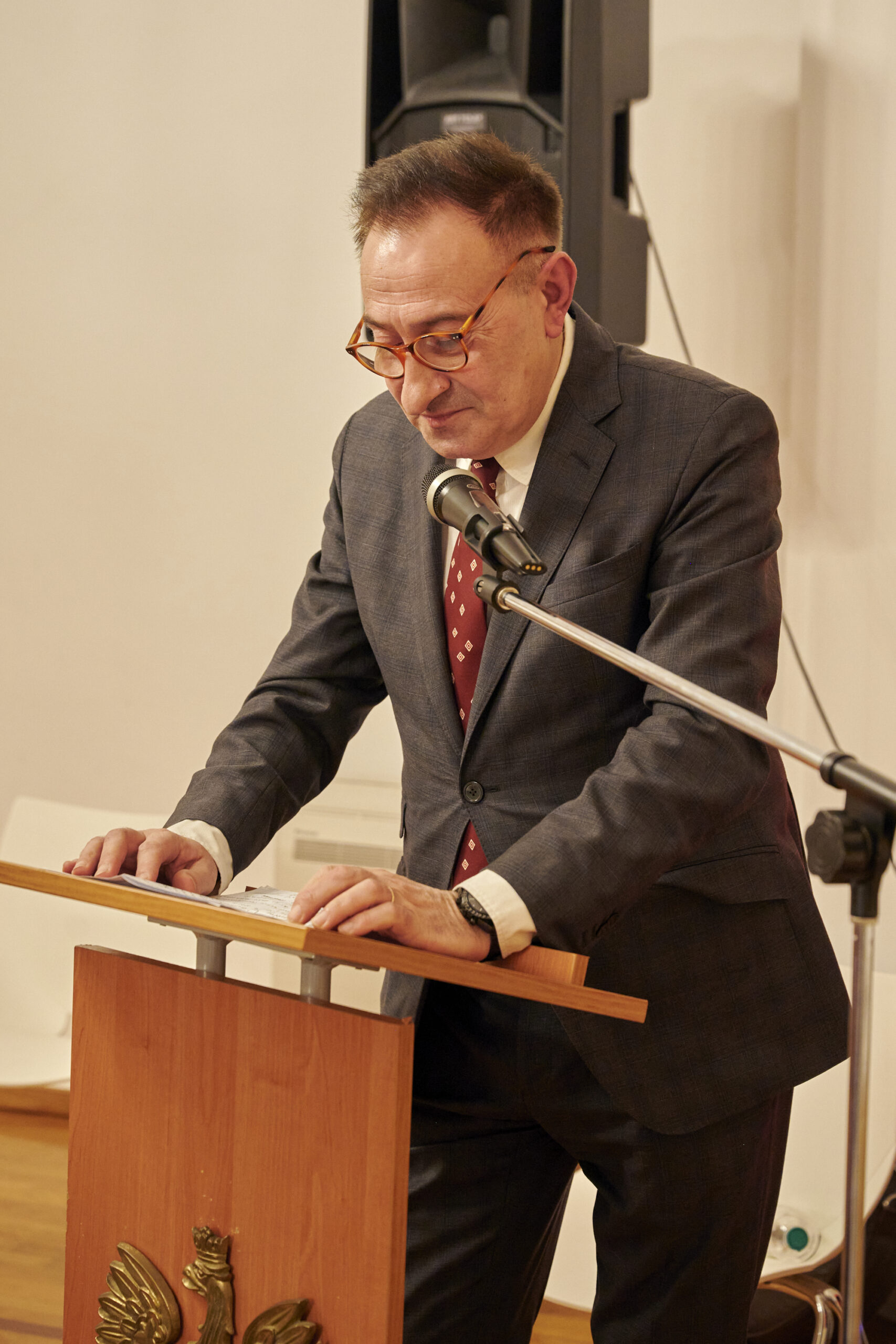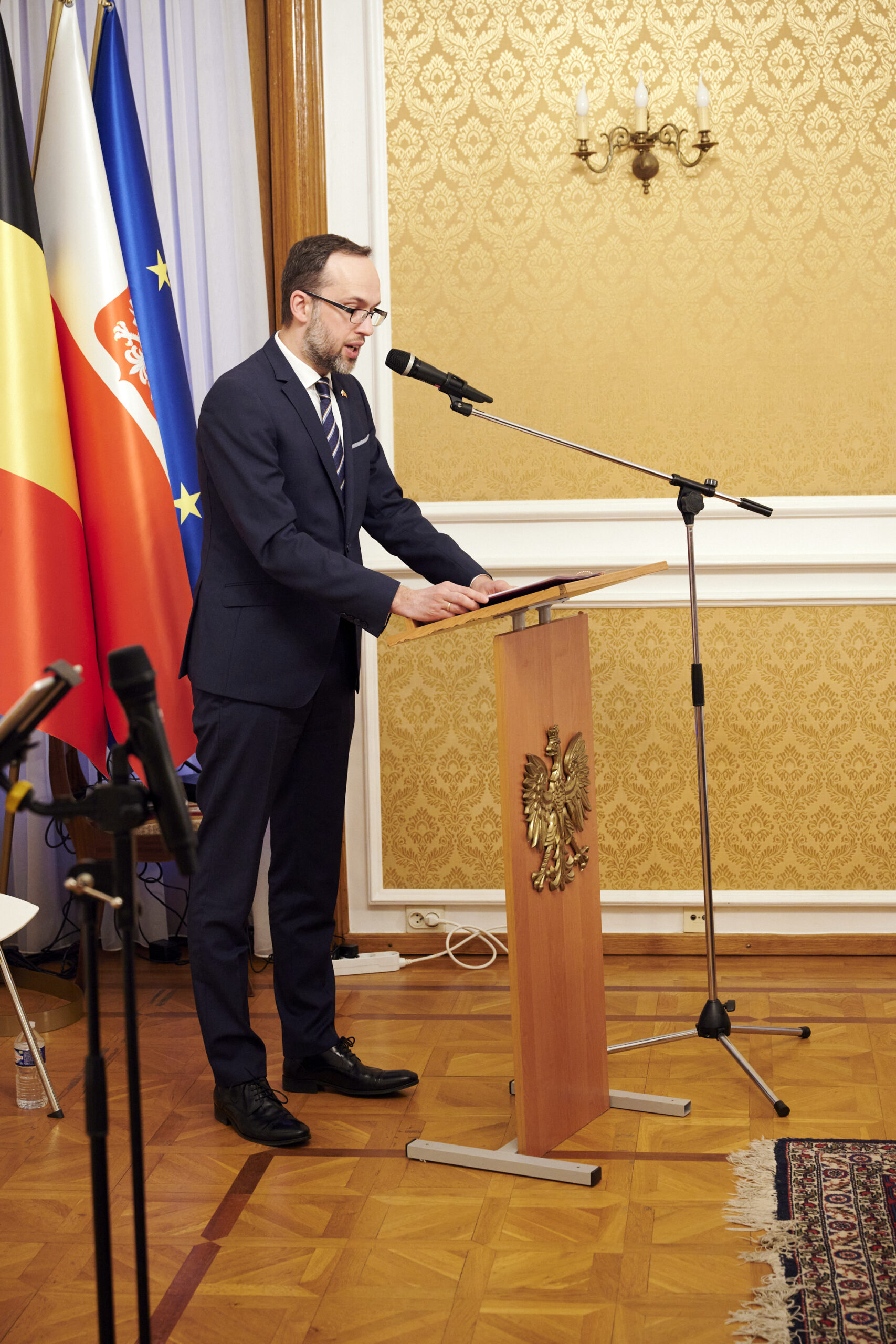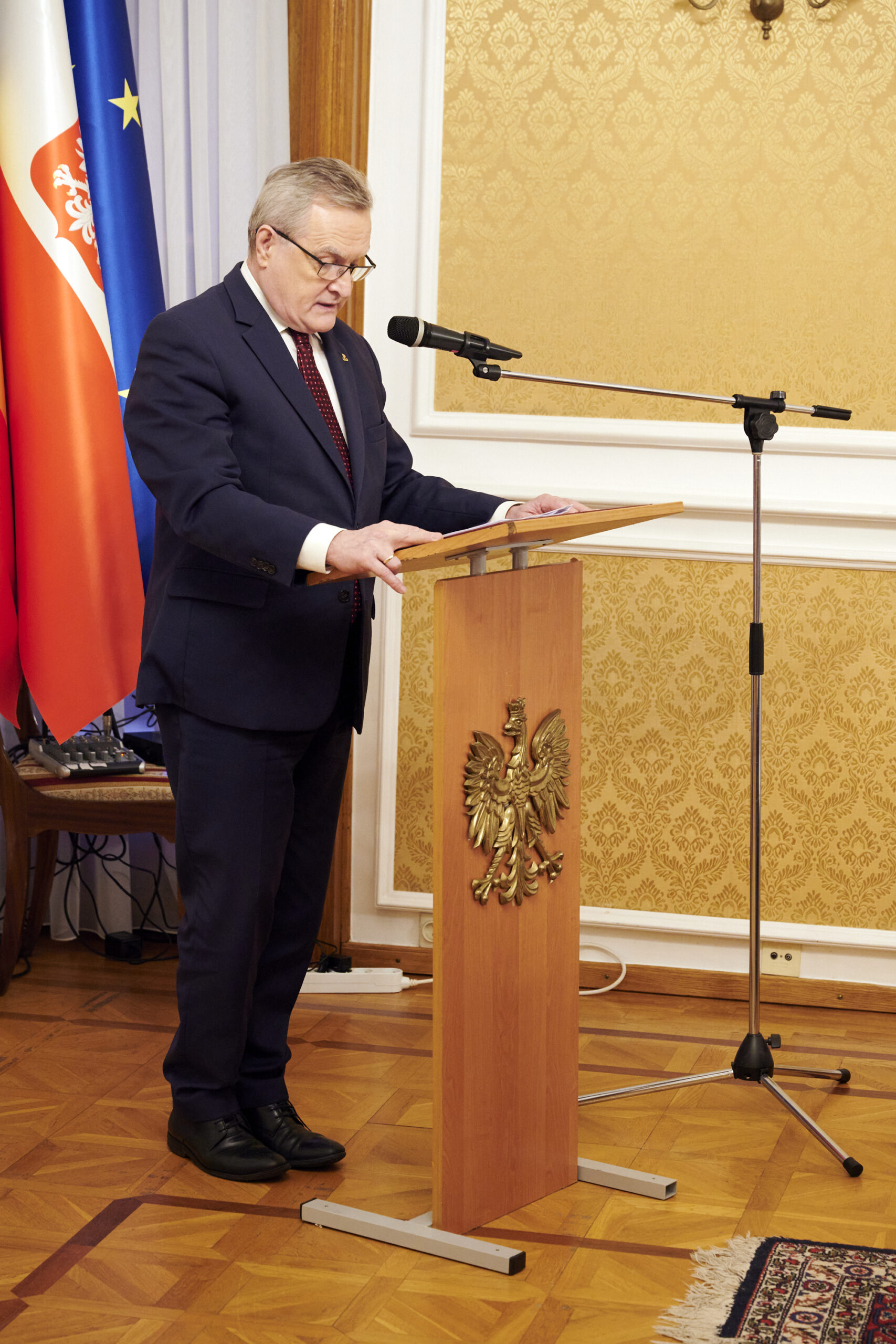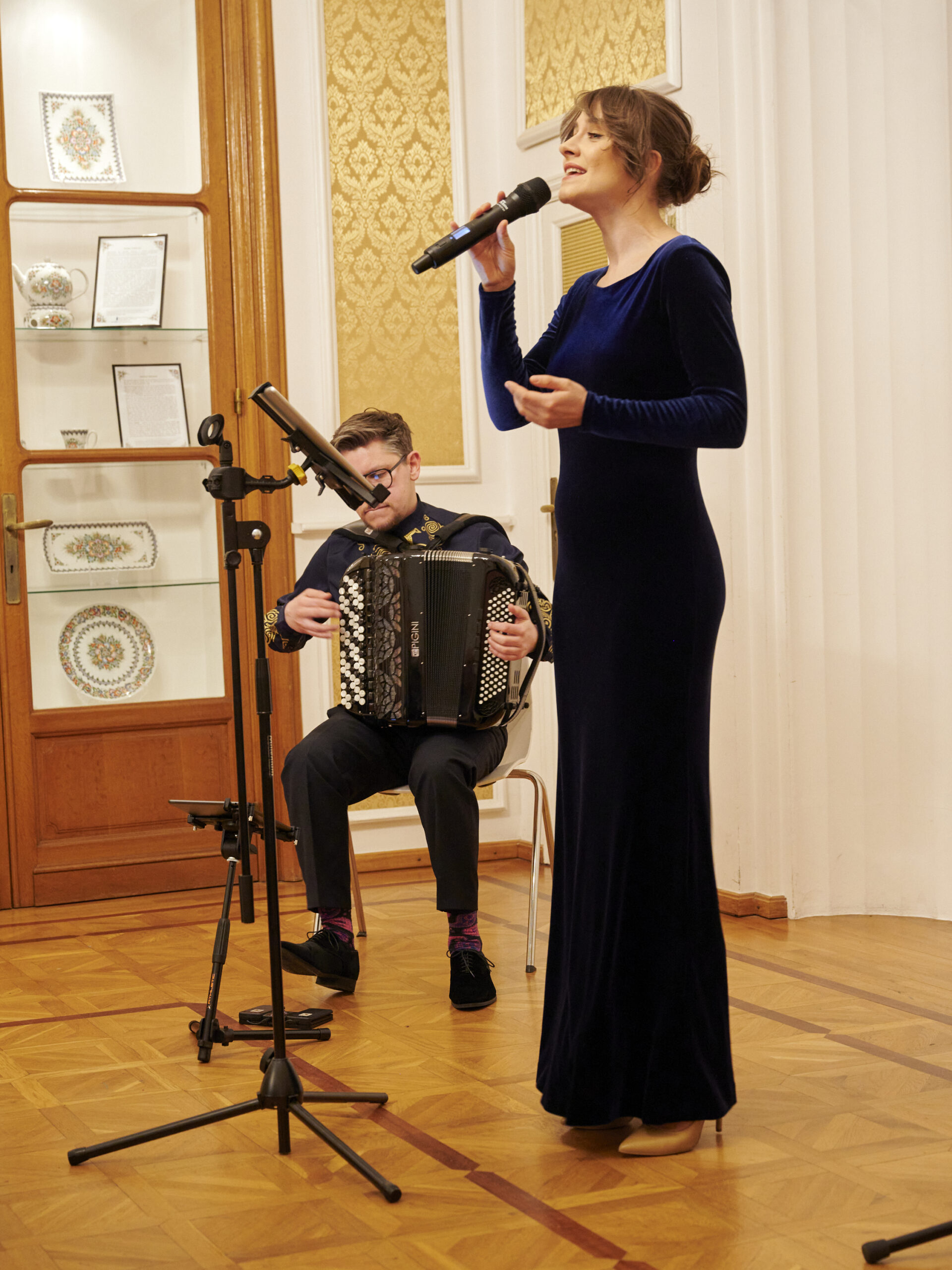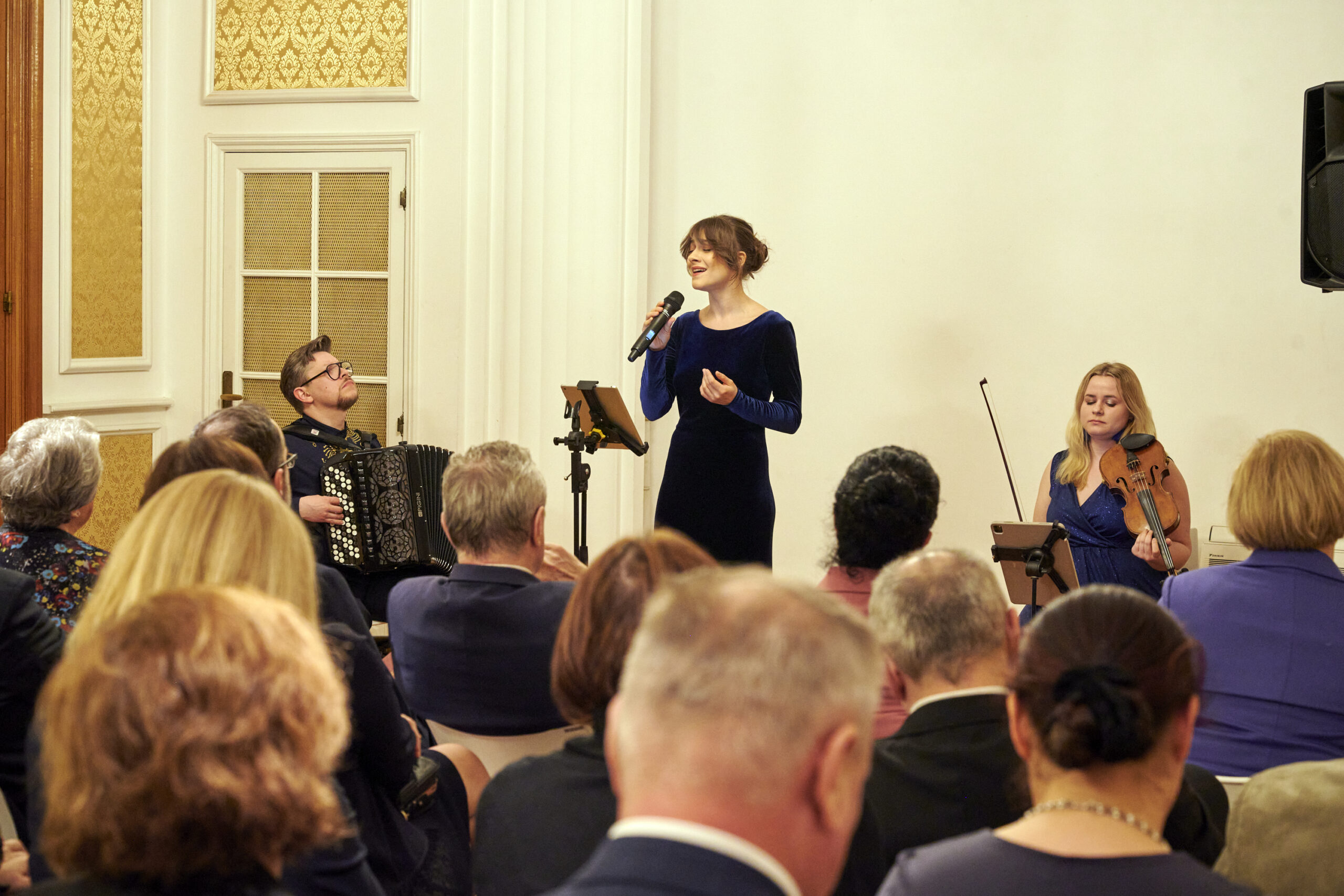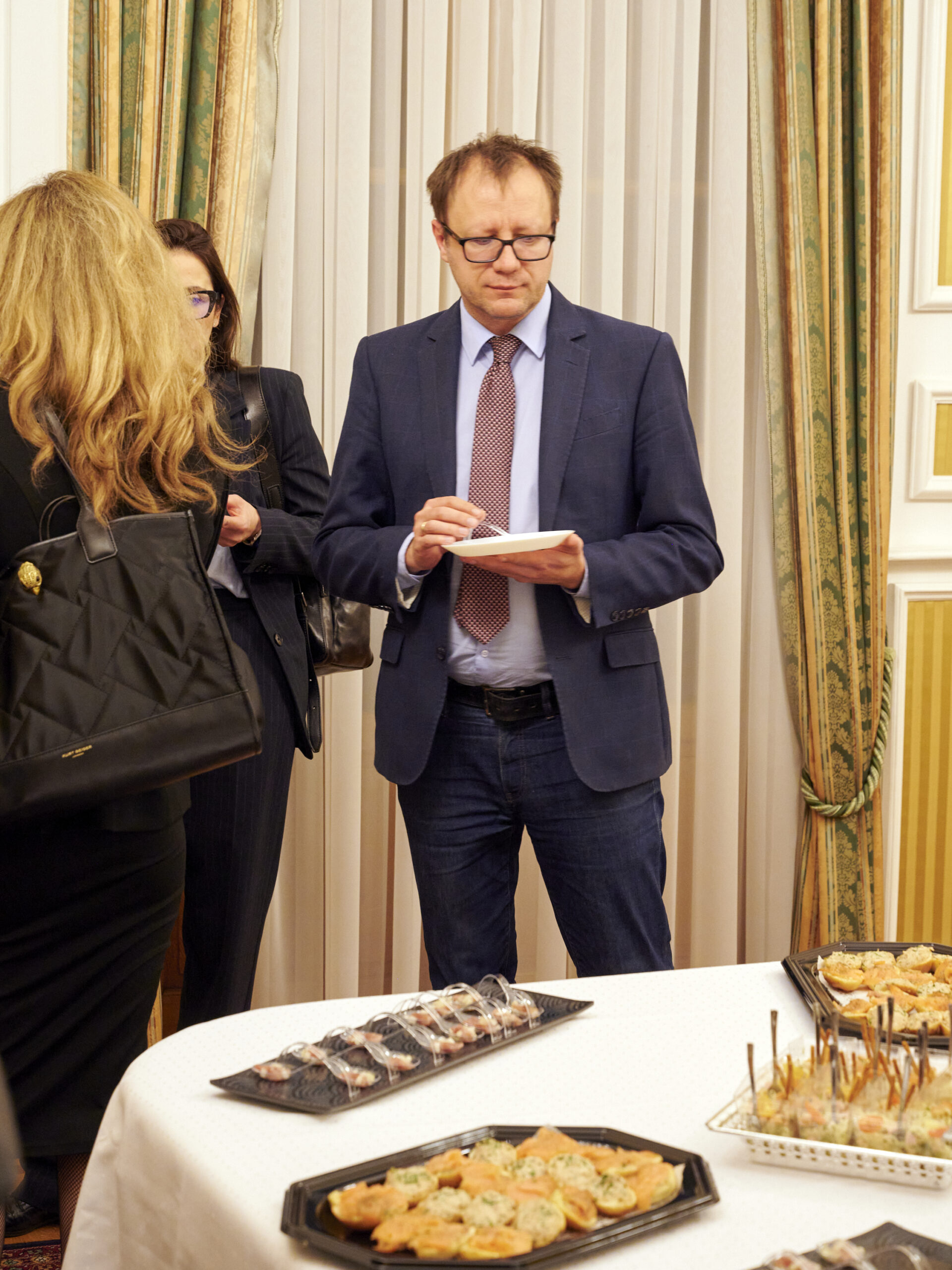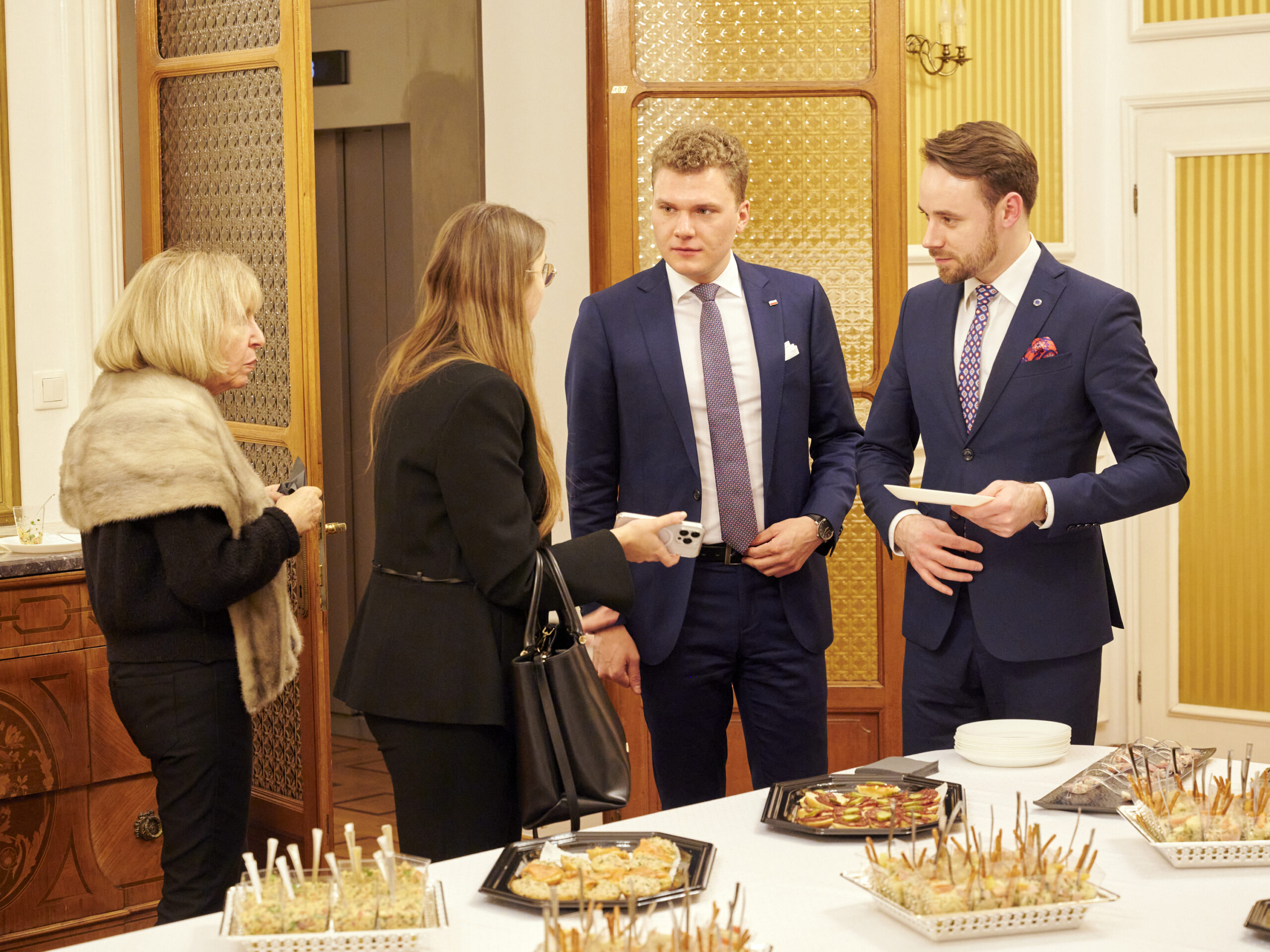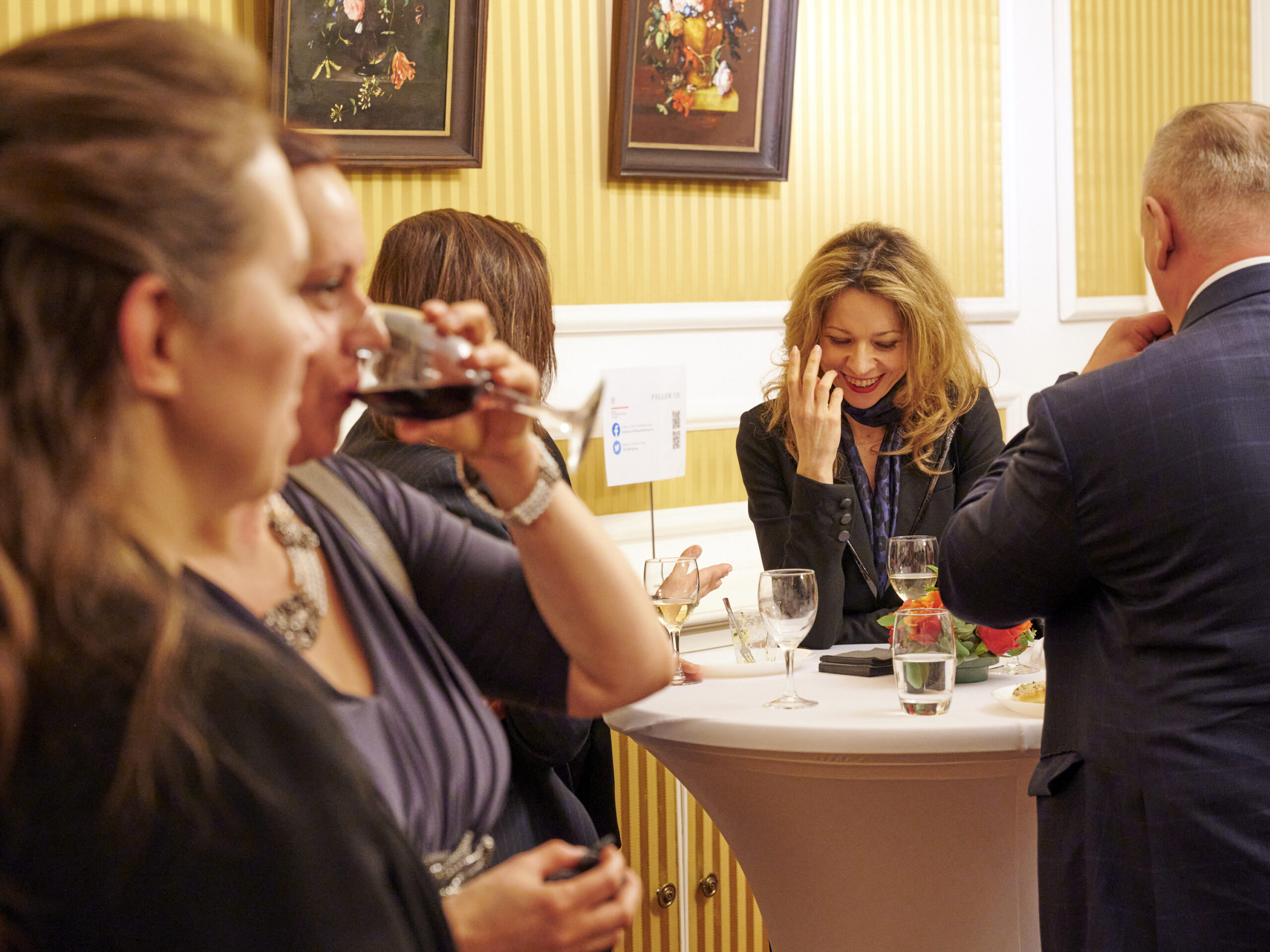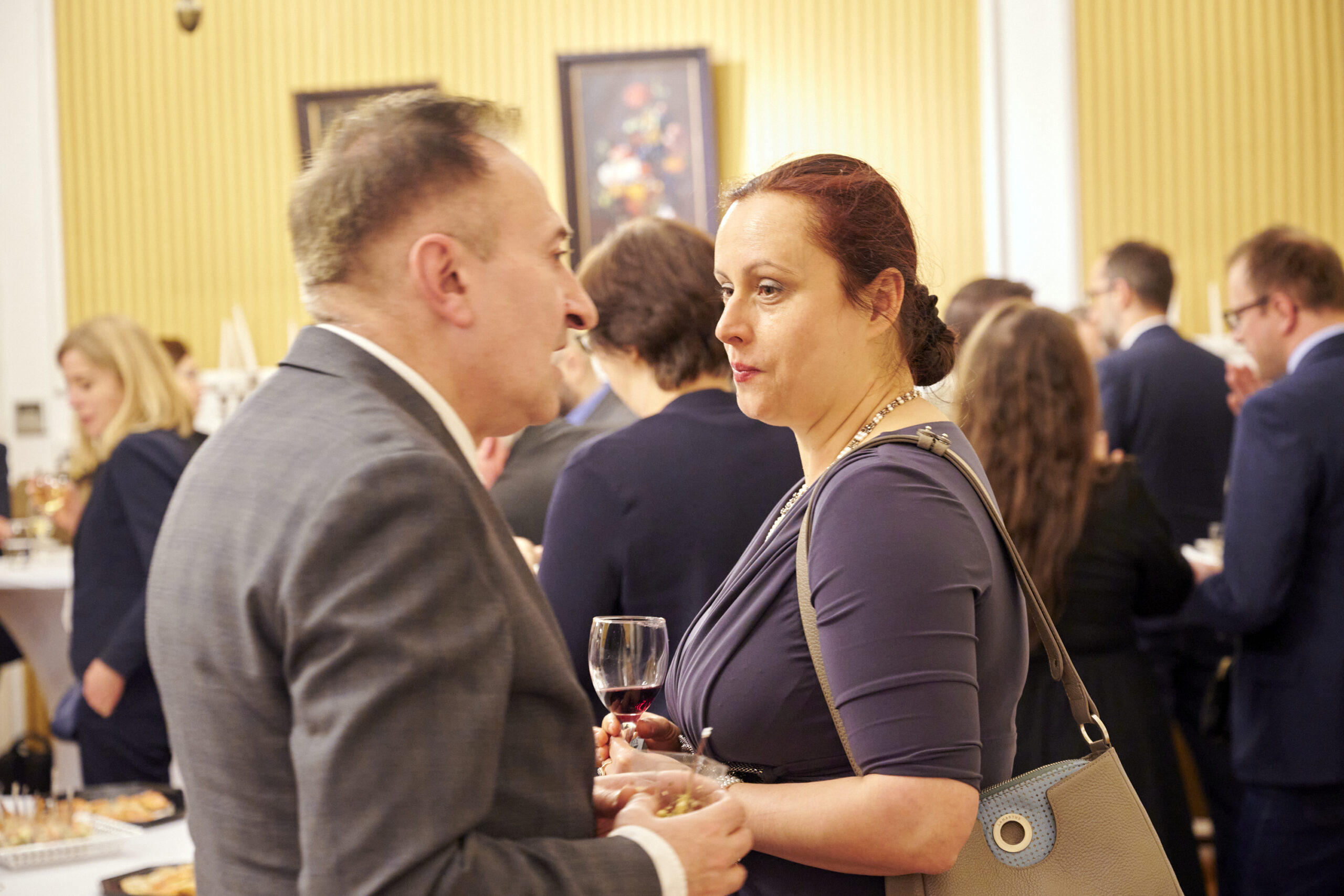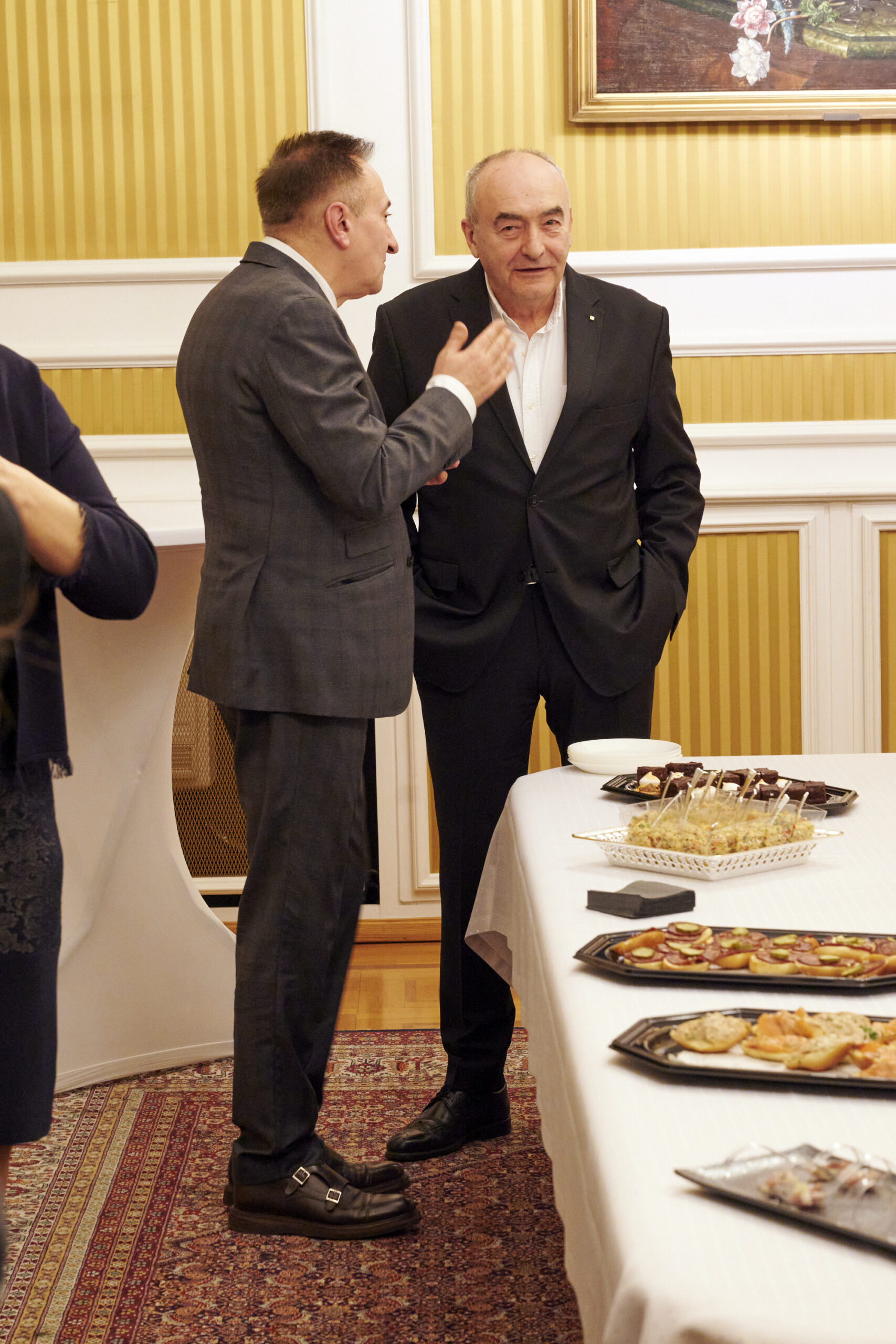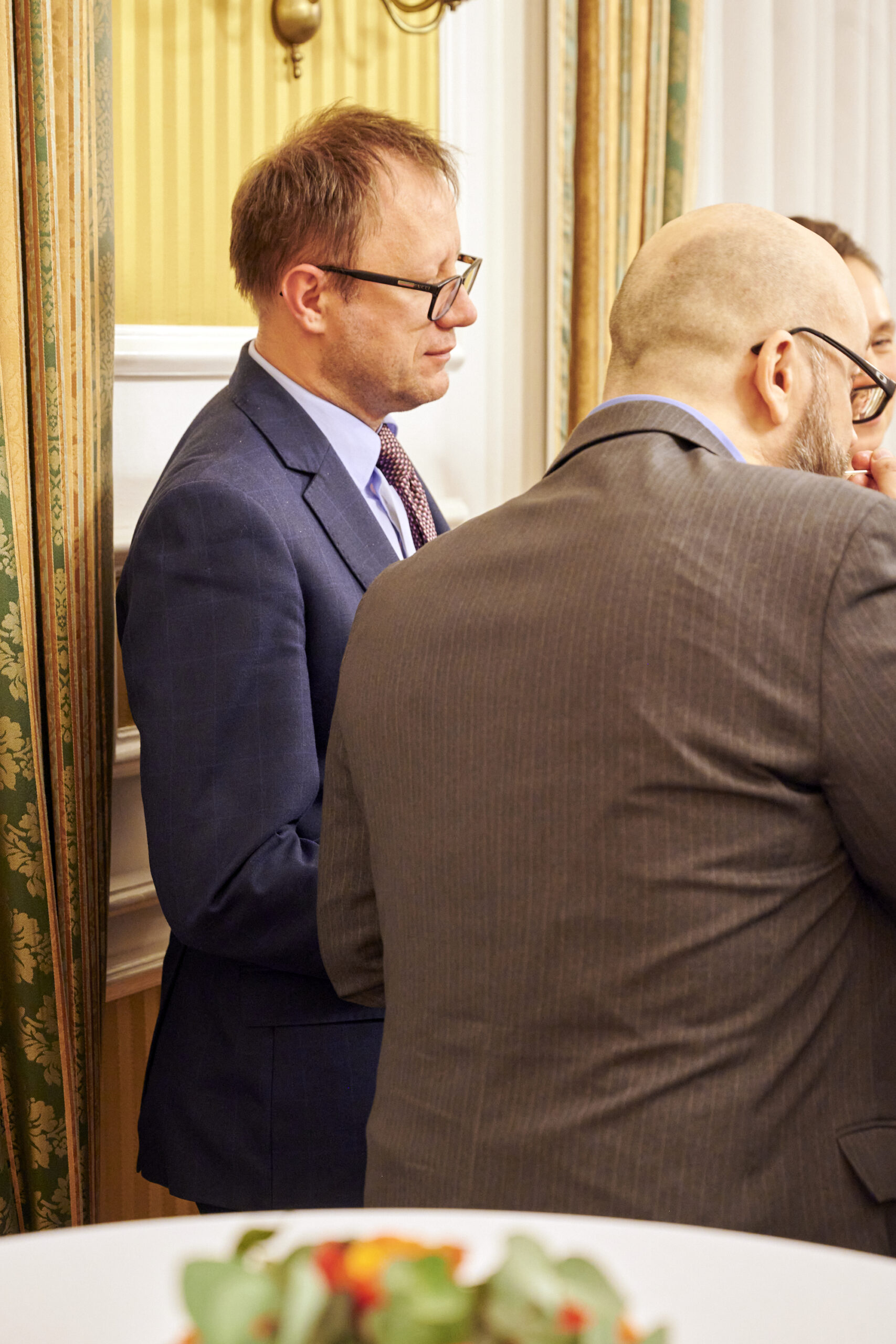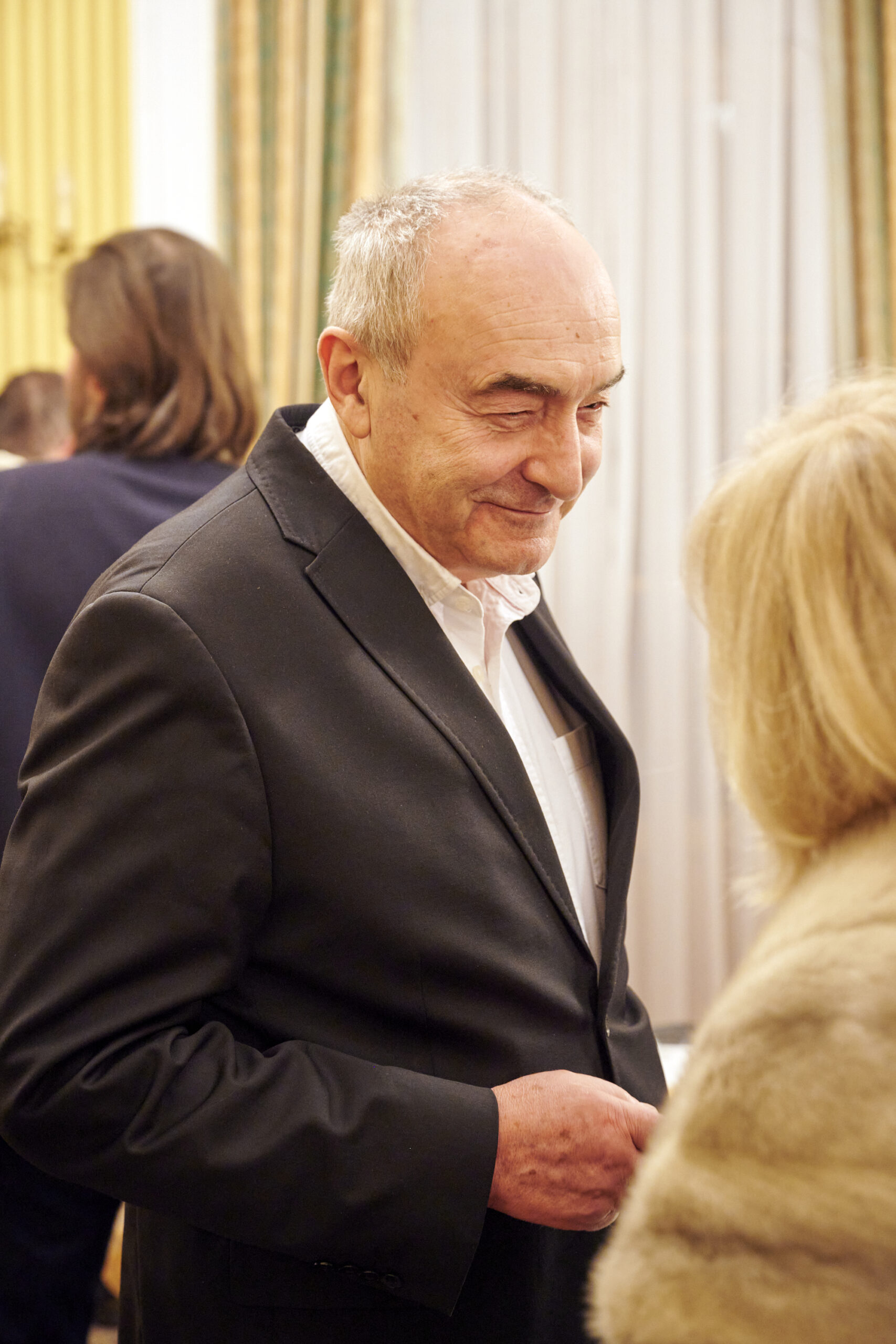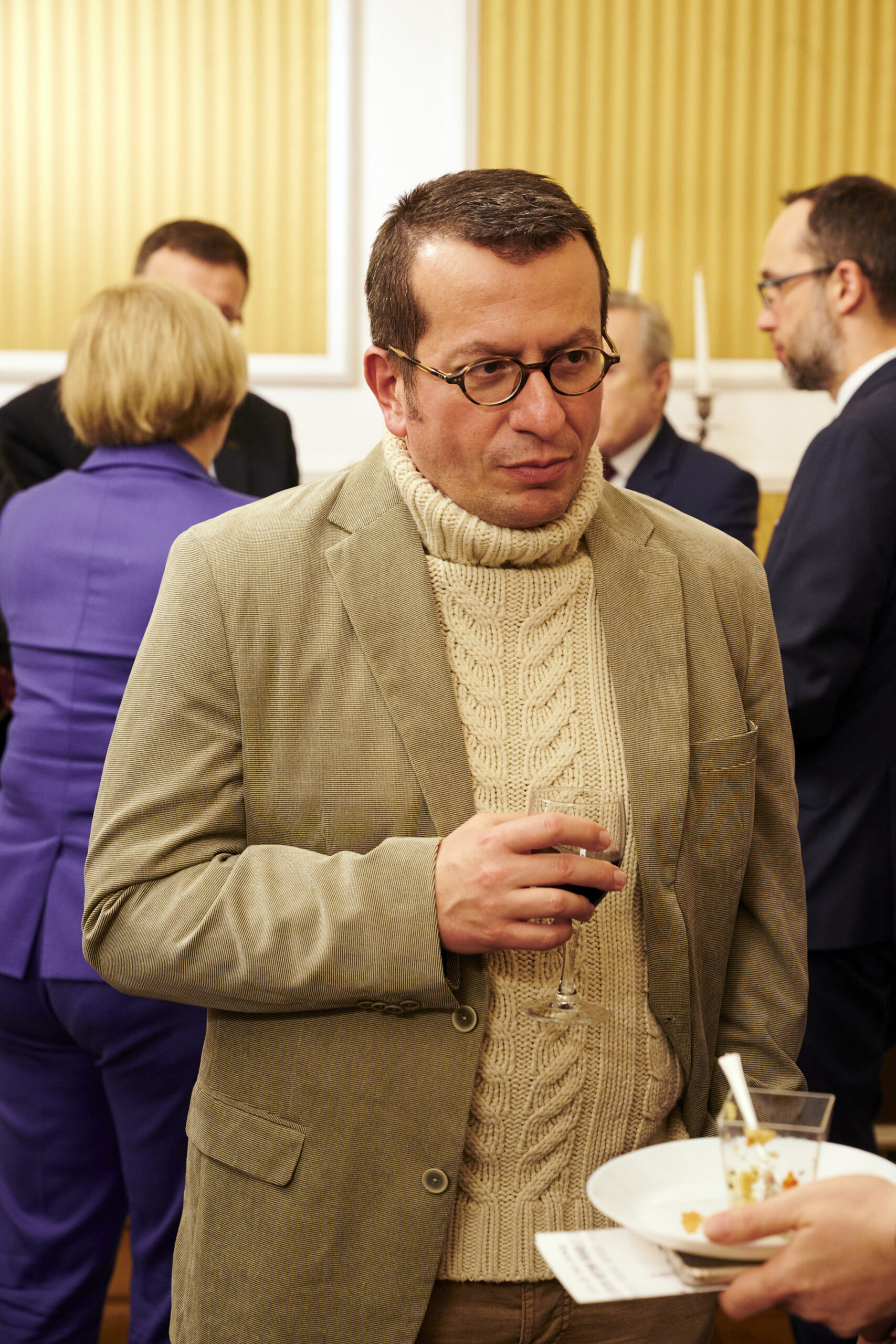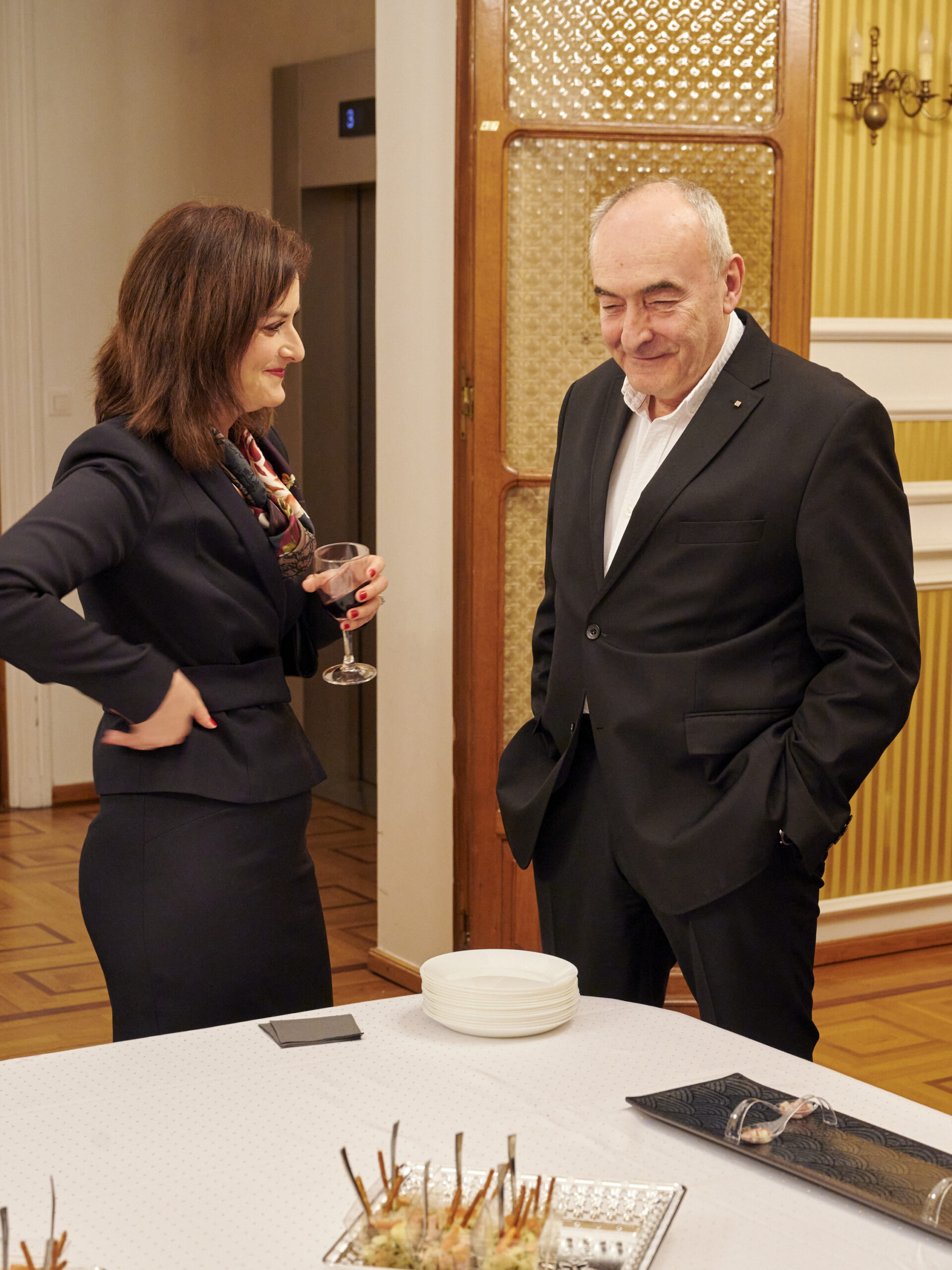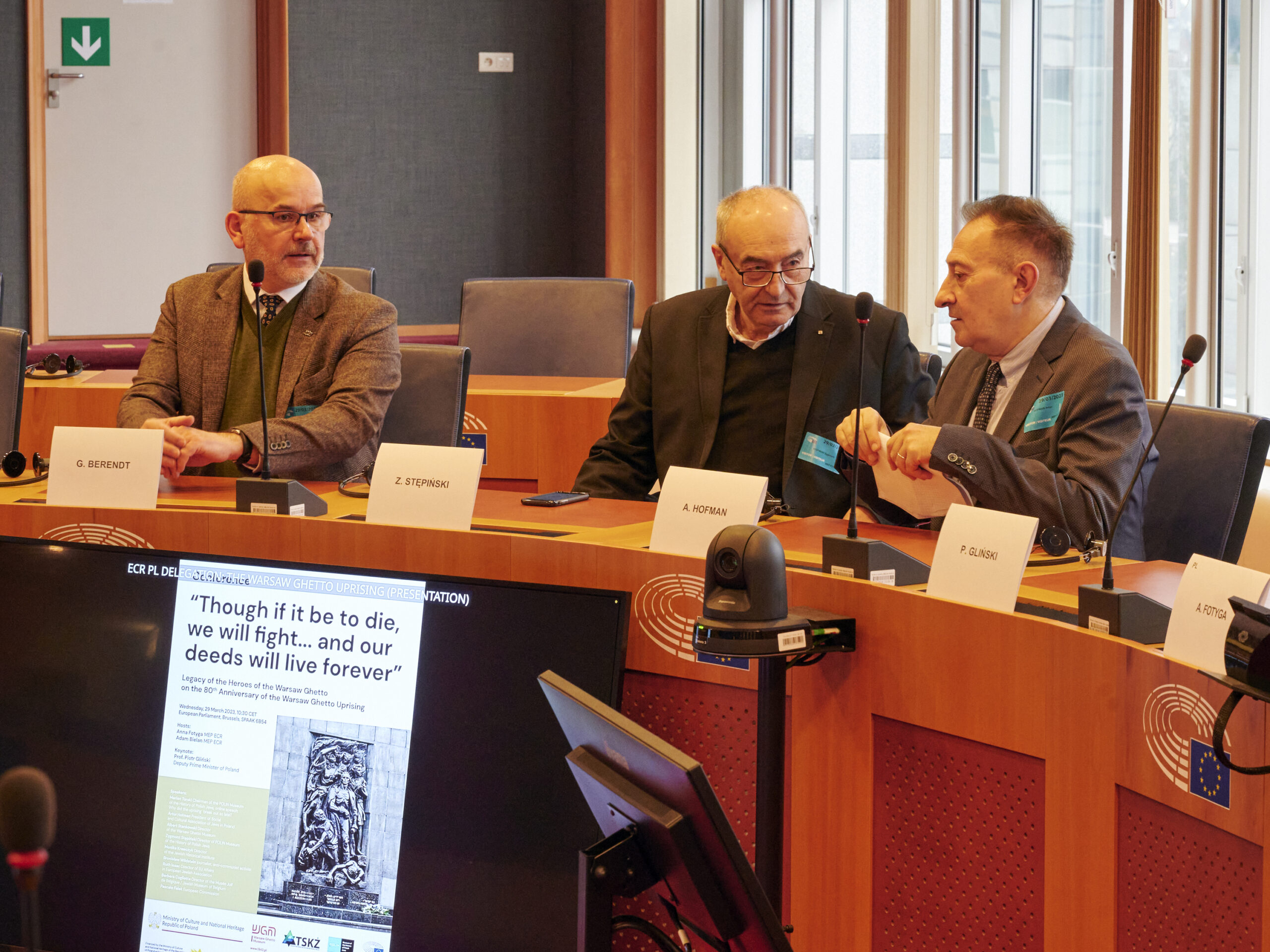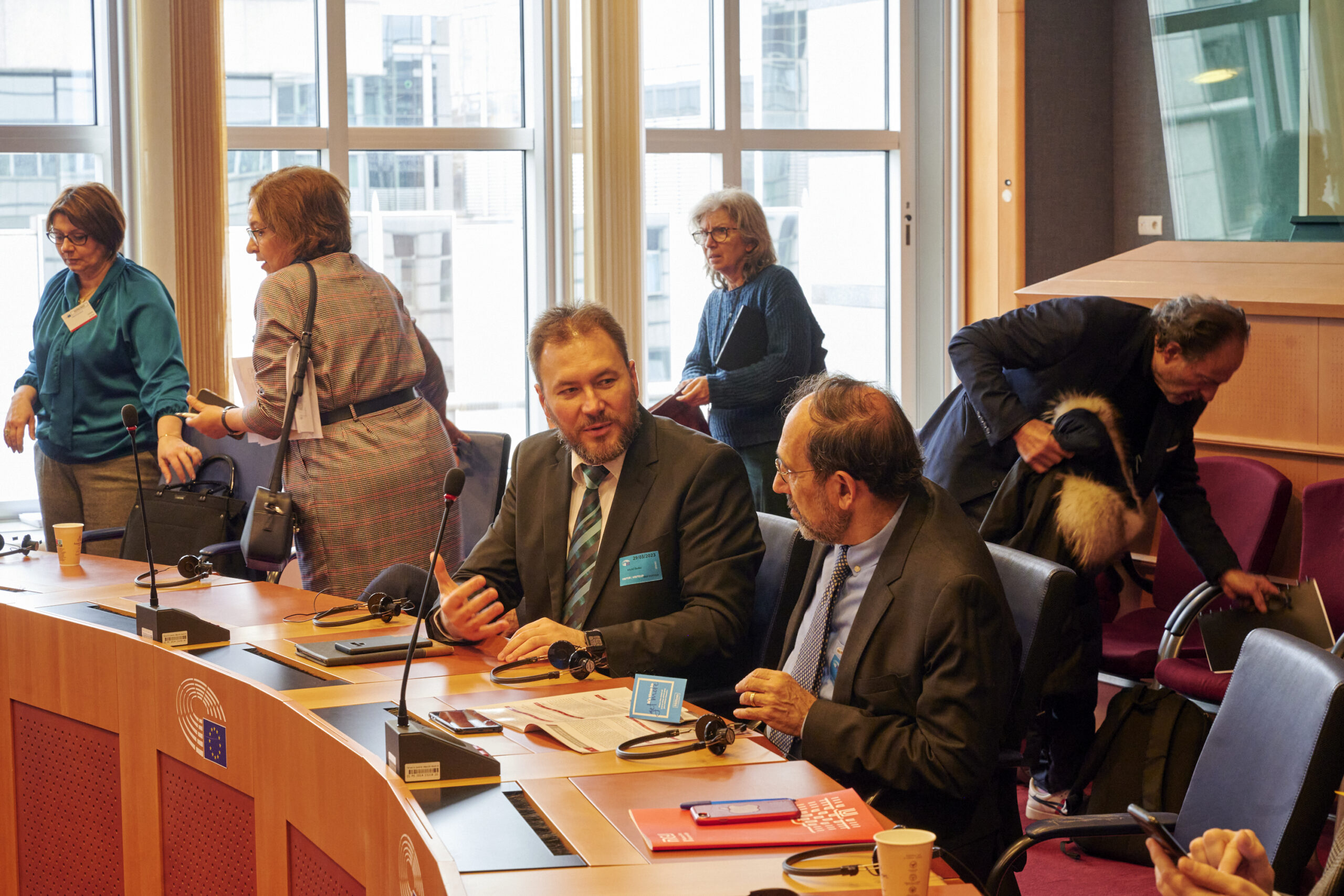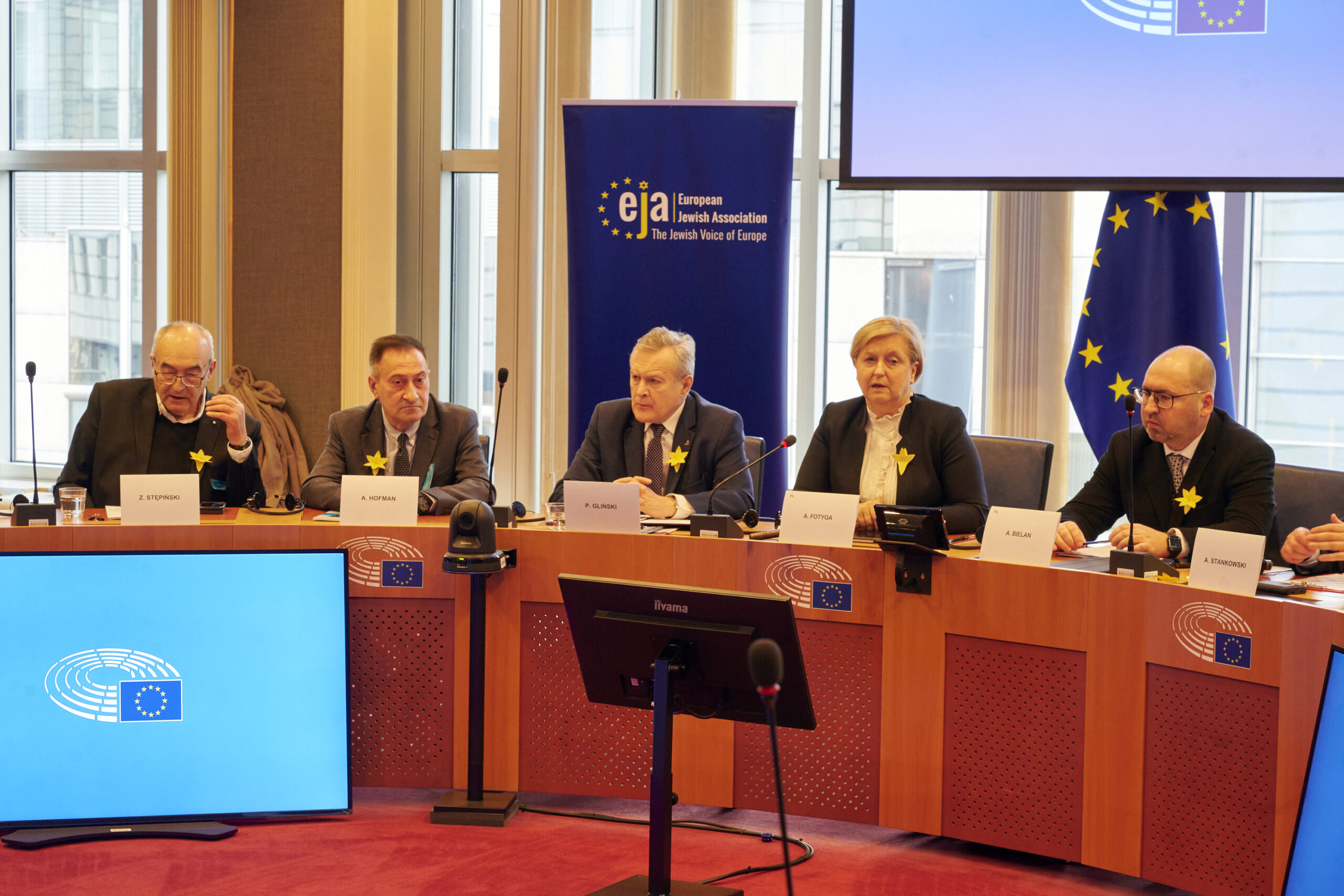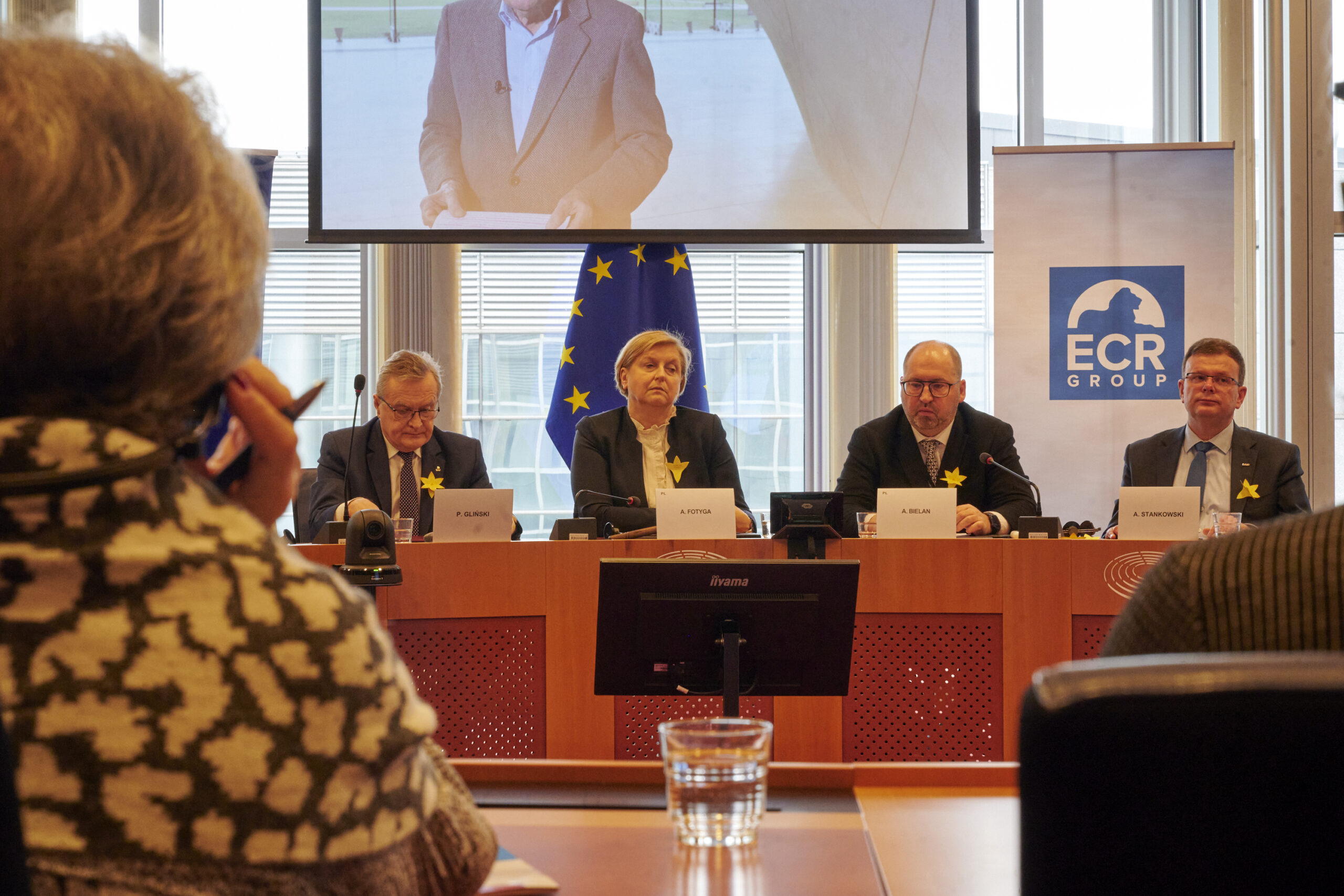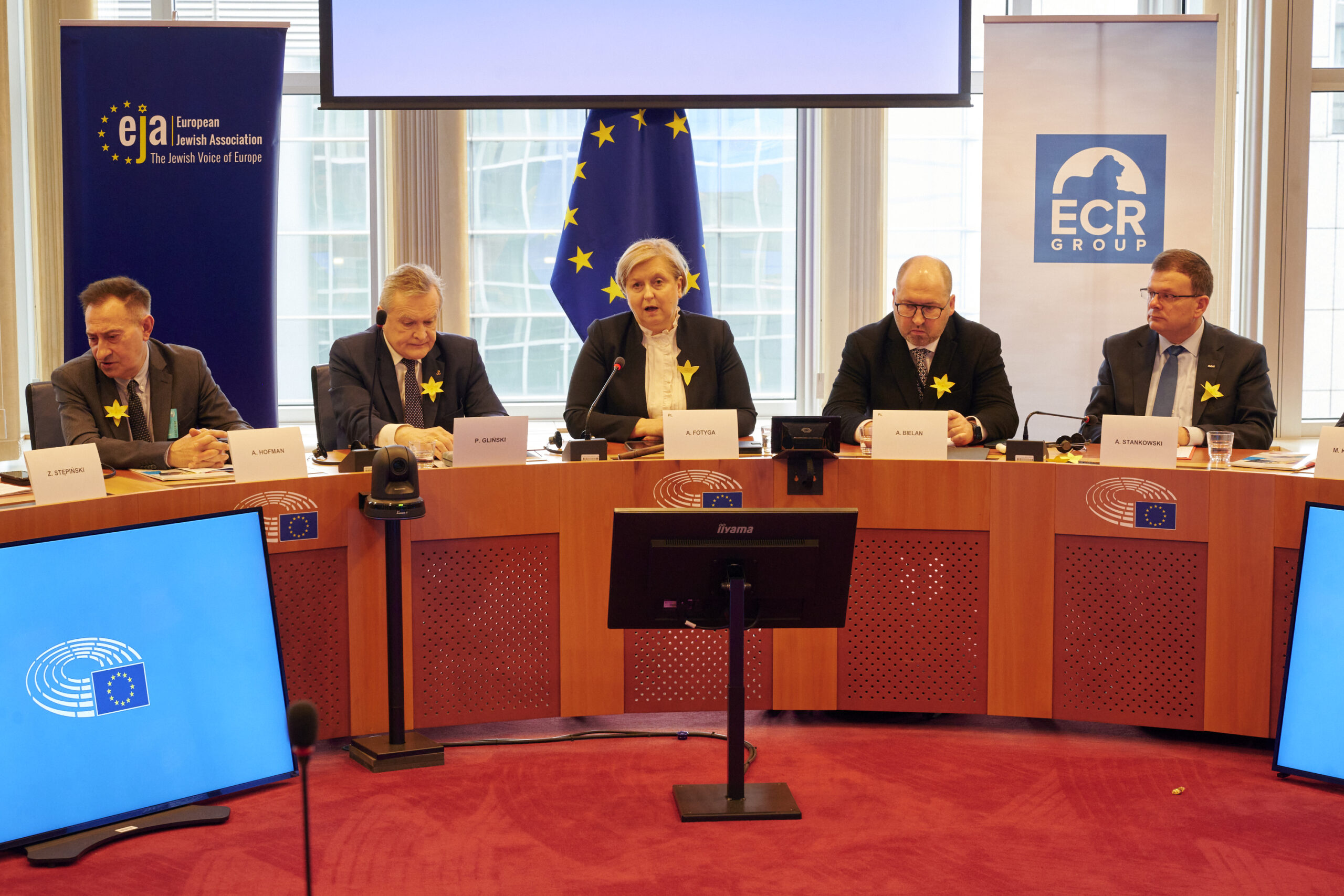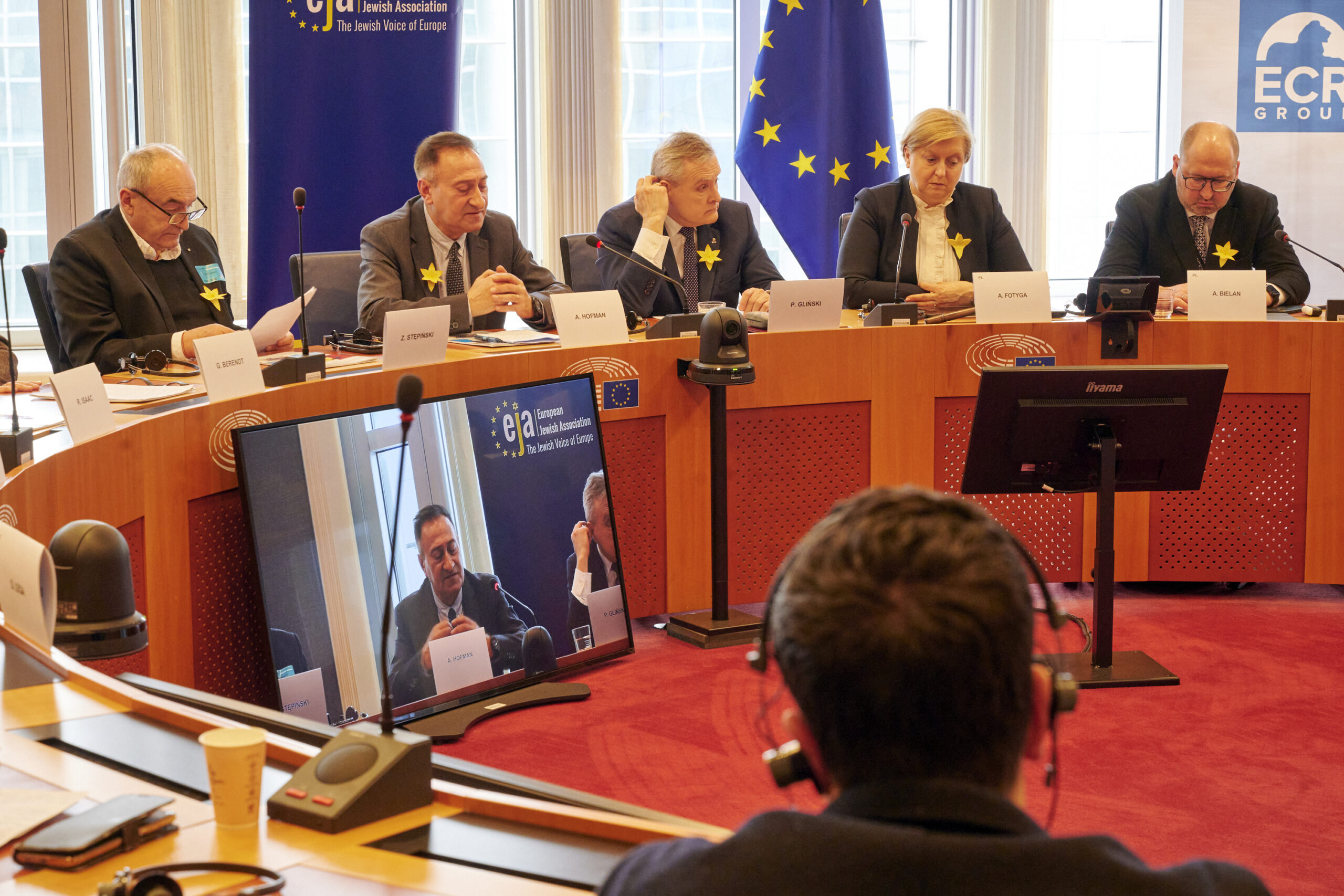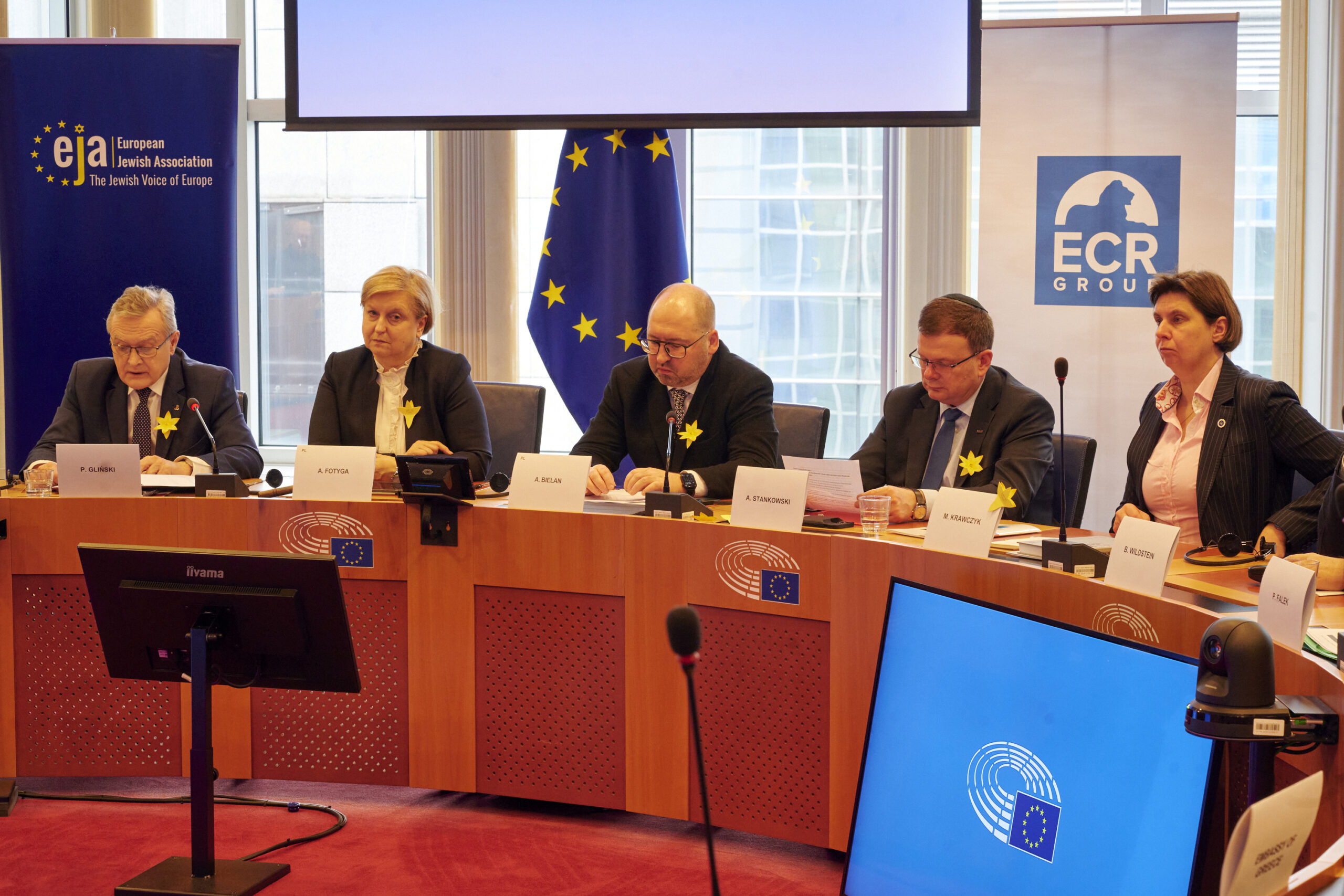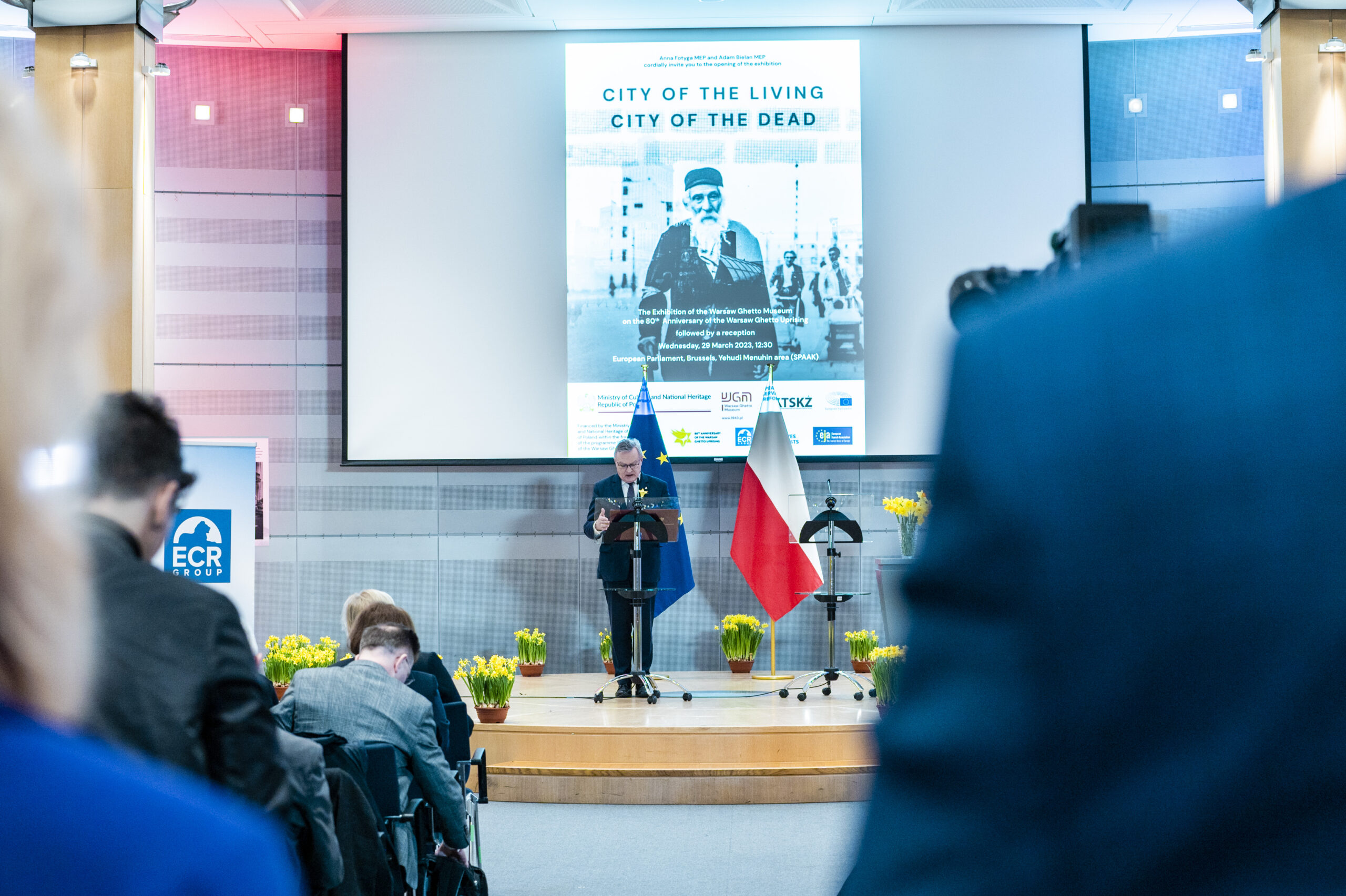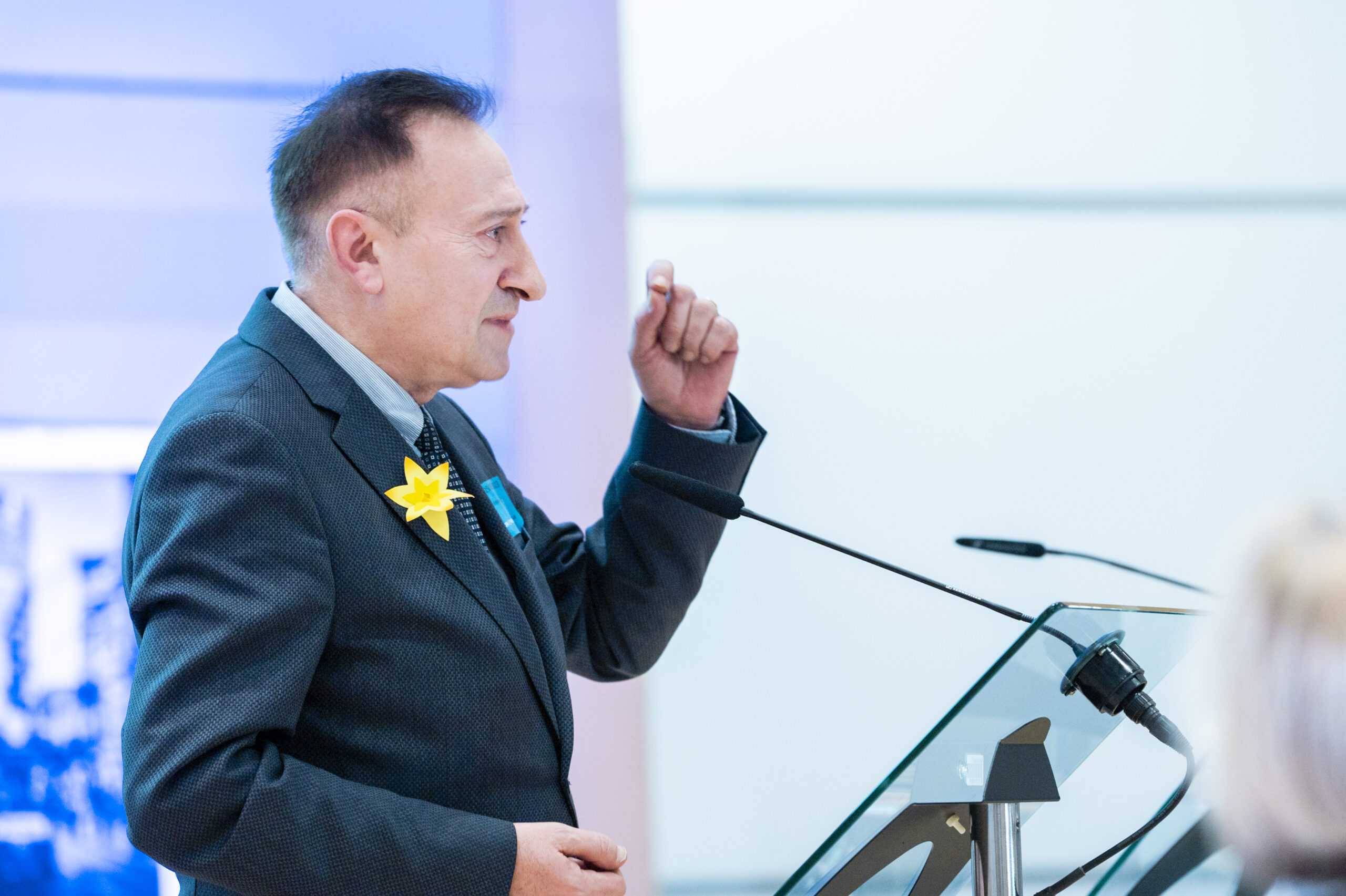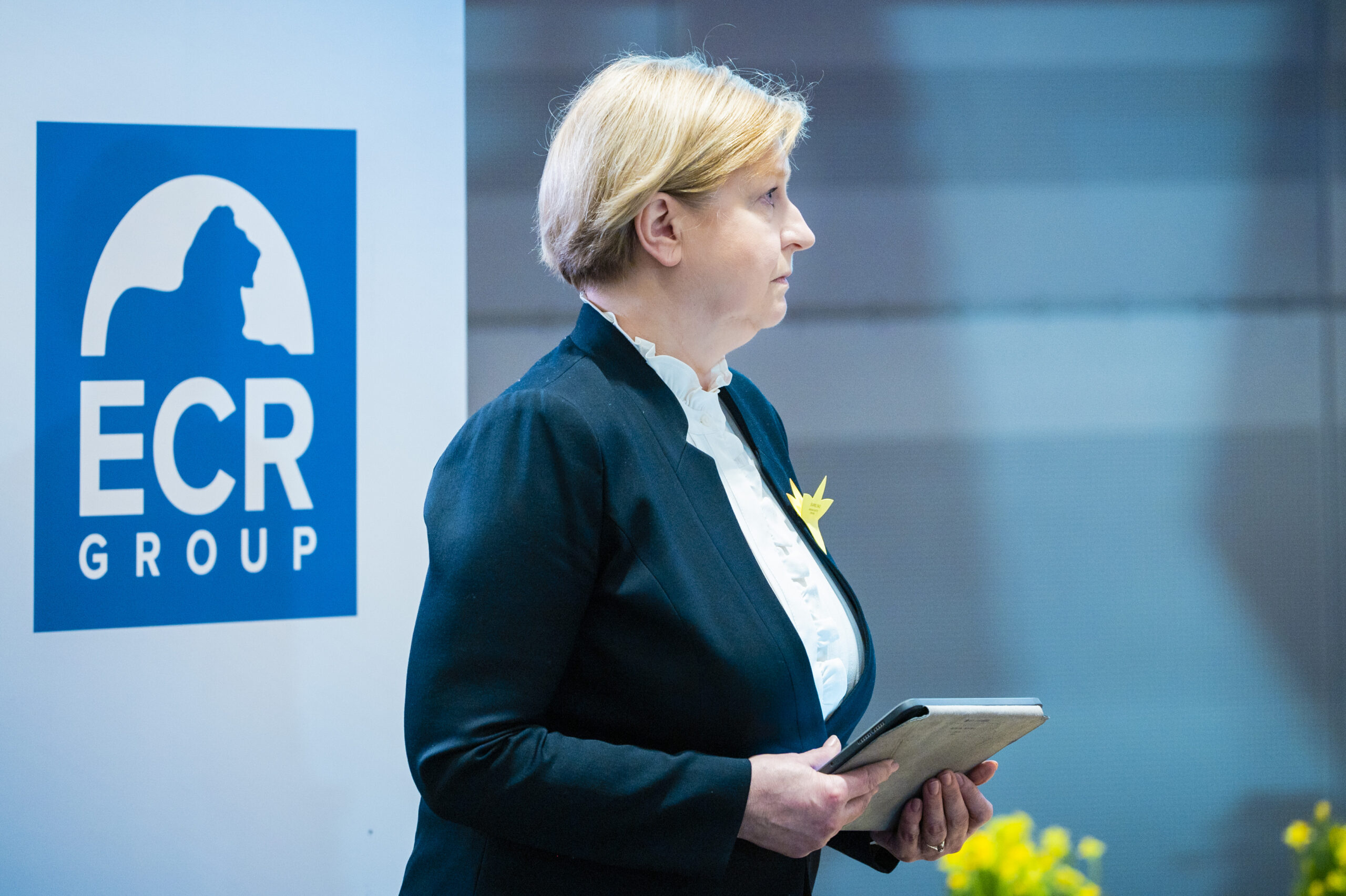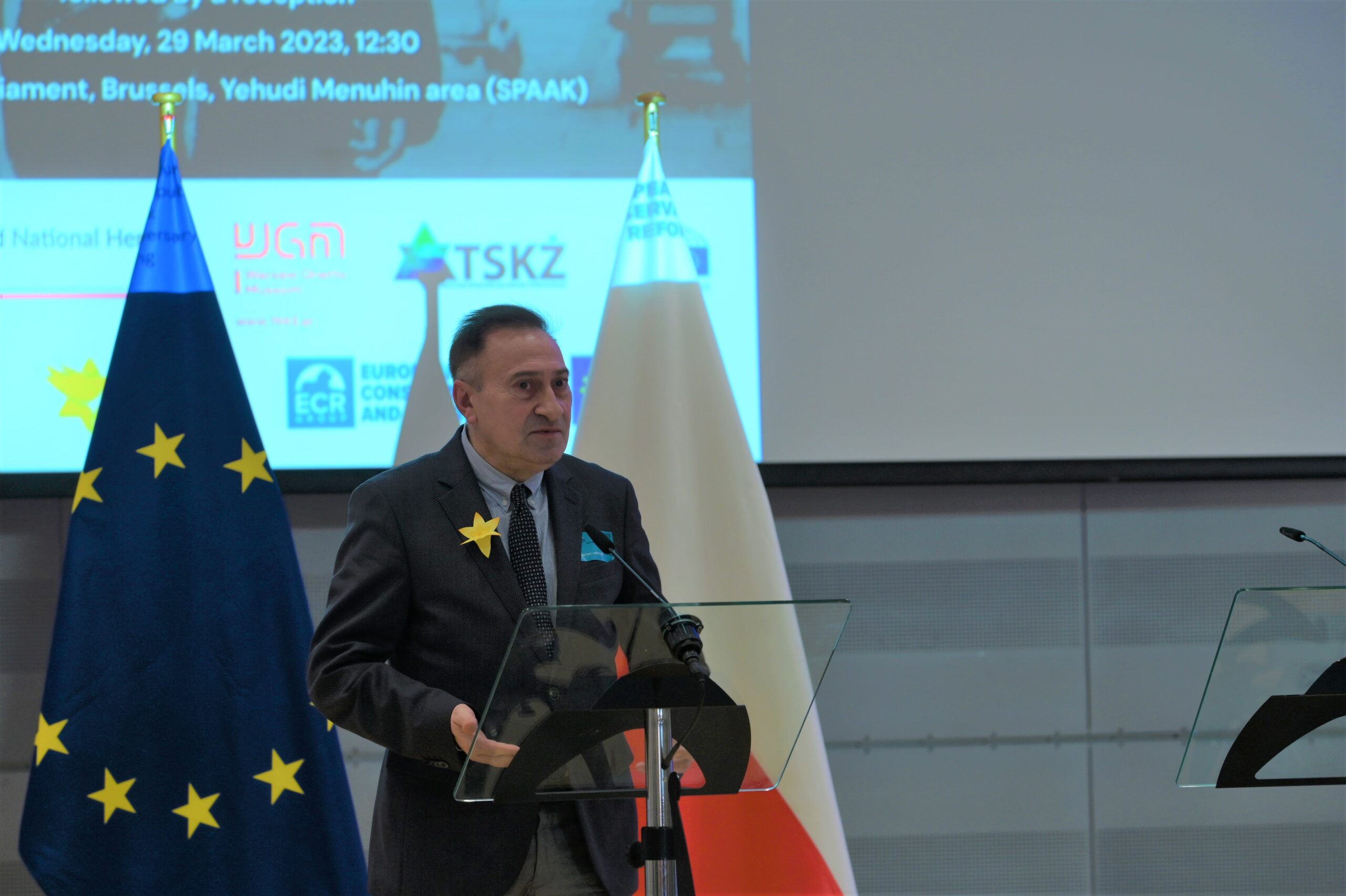Upon the initiative of the Social and Cultural Association of Jews in Poland, in cooperation with the offices of MEP Anna Fotyga and MEP Adam Bielan, the European Jewish Association (EJA) and the Warsaw Ghetto Museum, on 28th and 29th March, a series of events took place in Brussels to commemorate the 80th anniversary of the Warsaw Ghetto Uprising.
On the first day, a gala dinner was served at the Polish Embassy in Belgium. The dinner was preceded by speeches delivered by Piotr Glinski, Deputy Prime Minister and Minister of Culture and National Heritage, MEP Anna Fotyga and TSKZ Chair, Artur Hofman. A chamber concert by Sentido was presented as well. Ms Kaja Mianowana, the band’s lead singer, and the accompanying musicians i.e. Piotr Kopietz – accordion, Arad Emamgholi – percussion instruments and Weronika Mońka-Chwała – violin, presented Jewish songs in Yiddish, Polish and Ladino. The concert put the event’s guests in a very good mood. Sentido’s performance was particularly enjoyed by the Israeli ambassador, who personally gave her credits to the performing artists.
The gala dinner was attended, among others, by Her Excellency Ambassador of Israel to Belgium, Madam Idit Rozenzweig-Abu, and His Excellency Ambassador of the Polish Representation to the EU, Mr Andrzej Sadoś. Representatives of several Jewish institutions in Belgium were also present, and the event was hosted by His Excellency the Ambassador of the Republic of Poland to Belgium, Mr. Rafał Siemianowski, and the Director of the Polish Institute in Belgium, Ms. Agnieszka Bolecka. The meeting provided a platform for mutual exchange of ideas and experiences on various topics of Jewish life domestically and abroad.
On Wednesday, 29th March, a conference was held within the premises of the EU Parliament, under the theme: “Though it comes to us to die, we will fight… and our acts will live forever. The Legacy of the Ghetto Heroes” during which the memory of the heroes of the Warsaw Ghetto Uprising was recalled and the significance of the uprising for the history of both Poland and Europe was discussed. The conference was chaired by MEP Anna Fotyga, and speakers included. Deputy Prime Minister and Minister of Culture and National Heritage – Piotr Glinski, TSKŻ Chair – Artur Hofman, Director of the POLIN Museum – Zygmunt Stępiński, Director of the Warsaw Ghetto Museum – Albert Stankowski, Director of the Jewish Historical Institute – Monika Krawczyk, Director of the World War II Museum in Gdansk – Grzegorz Berendt, Ukrainian Ambassador to the European Union Vsevolod Chentsov, Deputy Coordinator of the European Commission to Combat Anti-Semitism – Pascale Falek, Polish journalist and opposition figure Bronislaw Wildstein, and Ruth Isaac (EJA). Also featured was a video recording of a speech by POLIN Museum Council Chairman, Mr Marian Turski, who examined the question: “Why did the uprising start so late?”. The event was attended by Polish and foreign journalists, and was broadcast live, inter alia, on the TSKŻ FB account.
– Members of the post-war generation of Jews in Poland built their identities by referring to those who stood up to fight back. We did not want to identify ourselves with the victims only – said Artur Hofman.
The debate was followed by the grand opening of the MGW exhibition “City of the Living/City of the Dead” at the prestigious Yehuda Menuhin Hall. This is a photography project by Robert Wilczynski combining historical photographs of the ghetto area (taken from the MGW collection) with images of contemporary Warsaw. The photographs have been supplemented with boards containing source texts taken, among others, from diaries and memoirs written in the Warsaw Ghetto, documenting the life and death of its inhabitants in 1940-1942).
Following the series of formal speeches delivered by Anna Fotyga, Jonathan Rozenzweig, Artur Hofman, Albert Stankowski and the director of the Brussels branch of the EJA – Alex Benjamin, the official part of the event ended with the song “Mayn Shtetele Belz” which was performed by the Sentido.
Photo by: TSKŻ/EU Parliament
The 80th Anniversary of the Warsaw Ghetto Uprising
The commemoration events have been subsidized by the Ministry of Culture and National Heritage
